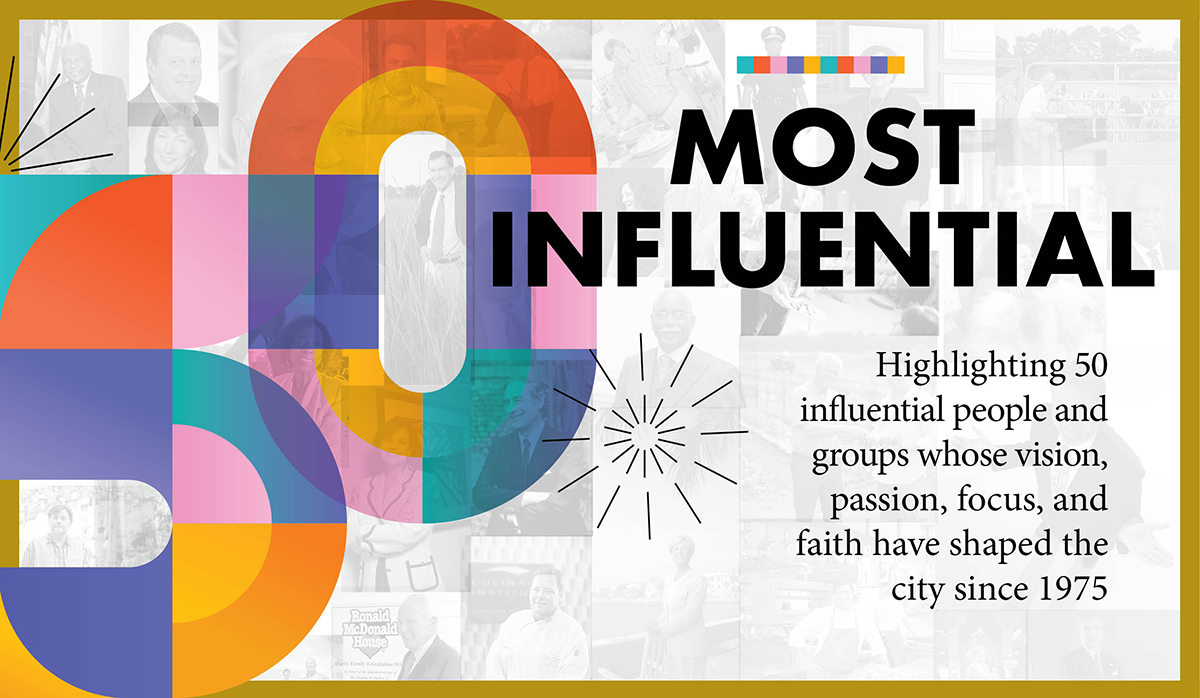
“A city is a cocreation, an ongoing act of shared responsibility,” writes Charles Marohn, founder and president of Strong Towns, a national nonprofit advocating for safe, livable, and inviting cities. Since 1670, there have been innumerable cocreators who have shaped the city we know today, but over the past half-century, that “ongoing act” has entailed unprecedented challenges and opportunities given the rapid shifts in how we live. Fifty years ago, Charleston (population 69,510; metro 276,000) had no computers, no Internet, no Daniel Island, no pandemic, no Yelp or AirBNB, no acknowledged sea-level rise, no CVB, and sadly, no Callie’s Biscuits. Here, we recognize those who have stepped up and shouldered the shared responsibility of navigating the changes and challenges as this old city moves into the 21st century.
How to narrow down to just 50 influential individuals and groups over the last 50 years? Not easily and not perfectly. This was not a popularity contest, nor a Google analytics rubric crowning someone an “influencer.” We tried to offer a balanced assessment of key players in important segments of the greater Charleston community. Surely you’ll ask why so-and-so isn’t here, and you’re right, they probably should be. But those you do find here have, undeniably, impacted various aspects of Charleston—her buildings and parks, her arts and her sciences, her classrooms and causeways, and her spirit. They are business people, nonprofit leaders, deep pockets, not-so deep pockets, disrupters, do-gooders, headline makers, under-the-radar folks, rabble-rousers of various ilk, and Grammy winners, some with us, some passed on. As we high-five these influential players (in no particular order), we hope it will inspire you as a cocreator of Charleston. What will your influence be?
Written by Stephanie Hunt
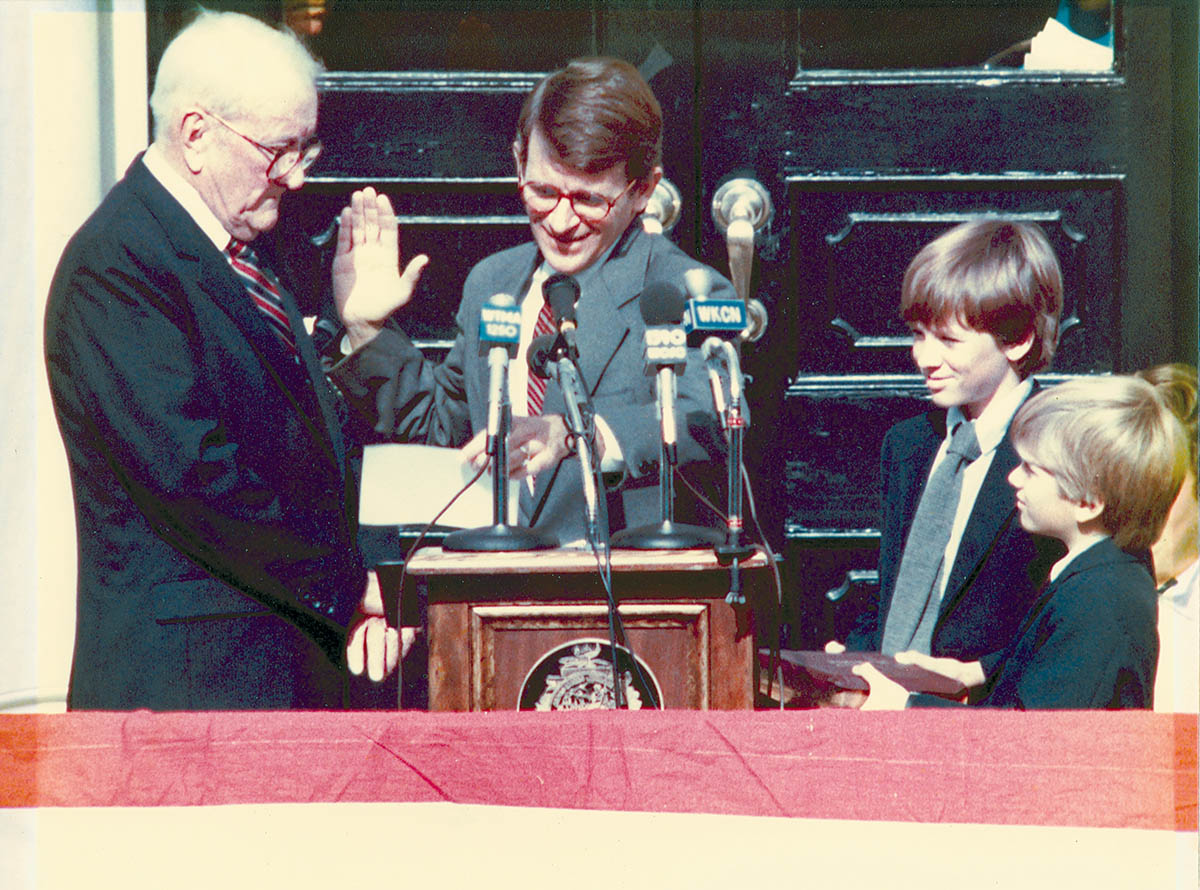
1. The Leader: Joseph P. Riley Jr.
Time and again throughout his 40-year tenure, Mayor Riley proved himself worthy of our votes, trust, and admiration. Demonstrating the same resolve and resilience that led us through Hurricane Hugo’s destruction in 1989, he set the tone for our response to the 2015 massacre at Emanuel AME Church, proclaiming, “My Charleston will stand united in the face of evil.” And we have. Sworn into office as a 32-year-old Charleston thoroughbred with the standard local resumé—Bishop England, The Citadel, USC School of Law—Riley evolved into a visionary leader, masterful consensus-builder, and heralded urban designer whose passion for creating a vibrant public realm will be his legacy. While young Joe campaigned on improving race relations in the ’70s—a work in progress—his record of accomplishment and influence is too long and impressive to list, but here are a few: a revitalized King Street, Waterfront Park, lower crime rates, improved downtown schools, a sparkling new Gaillard, and the International African American Museum, for starters.
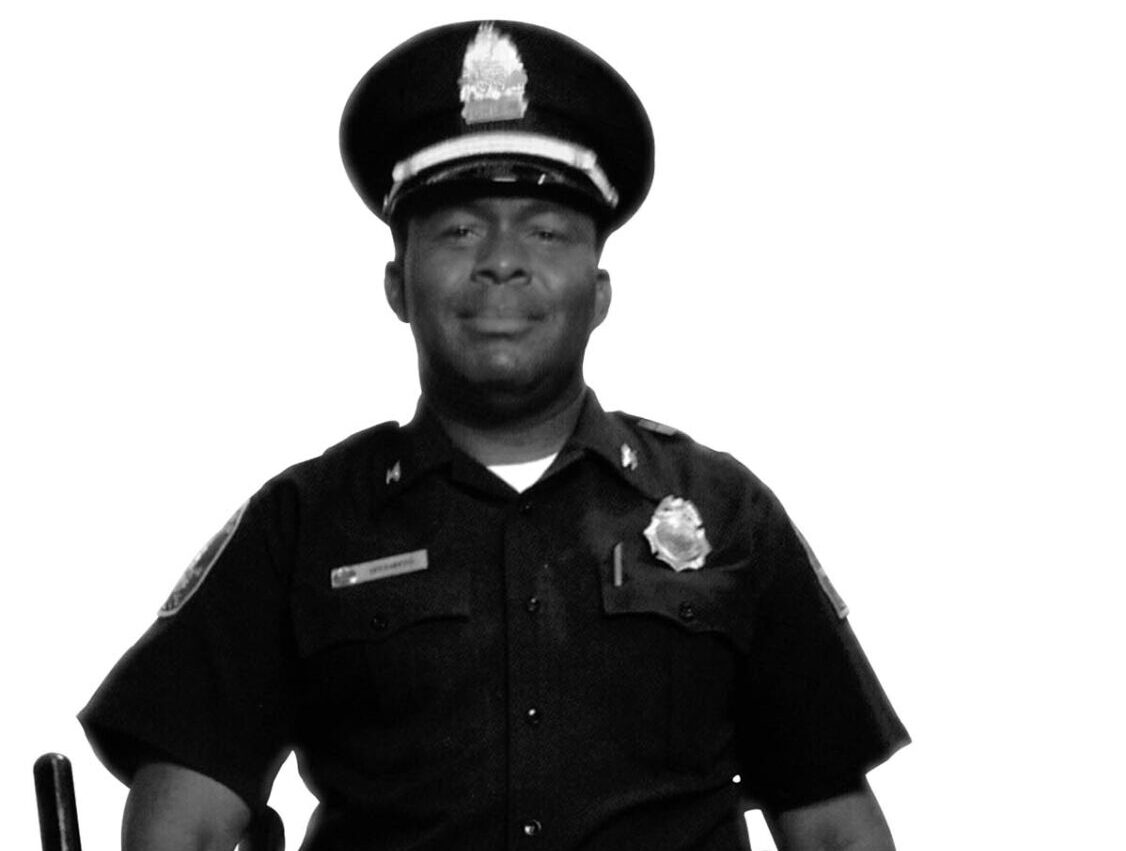
2. The Enforcer: Reuben Greenberg (1943-2014)
During his 23 years of service (1982 to 2005), the first African American police chief in Charleston’s history cut the city’s crime rates significantly. After Hurricane Hugo, his firm stand helped prevent widespread looting, and his innovative techniques became a model for police departments around the country. He broke the mold in many ways: as a rodeo-loving, Jewish Texan who dressed as Santa in the Christmas parade and as a street-patrolling, tough-talking policeman who was all business on the beat and all fun on roller skates. “Reuben opened doors of racial progress all over this community,” Mayor Riley said after Greenberg’s death. “He made the city safer and made it a more just and better place.”
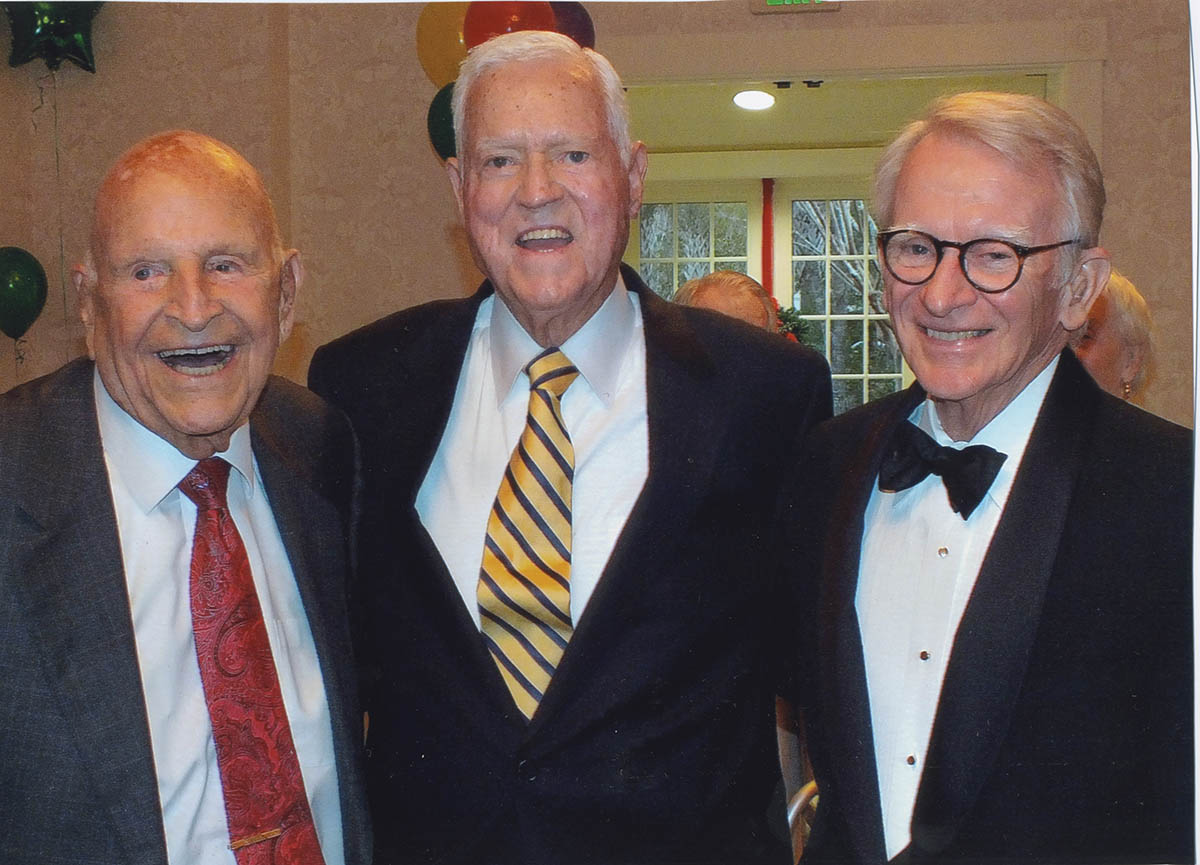
3. The Commander: Dr. Ted Stern (1912-2013)
“Commander” may sound more stern than the gregarious and oft-grinning Ted Stern really was. His leadership deftness, honed as a former commanding officer at the Charleston Naval Supply Center, transformed the College of Charleston from a financially troubled, private college when he became president in 1968 to a robust institution within the state system only a decade later, with enrollment up tenfold and a $34 million capital expansion. He also helped found the Coastal Community Foundation in 1974 and was instrumental in creating and nurturing Spoleto Festival USA as its founding president. “One of the most important things I’ve learned,” Stern once said, “is that a group of people working together can accomplish anything.”
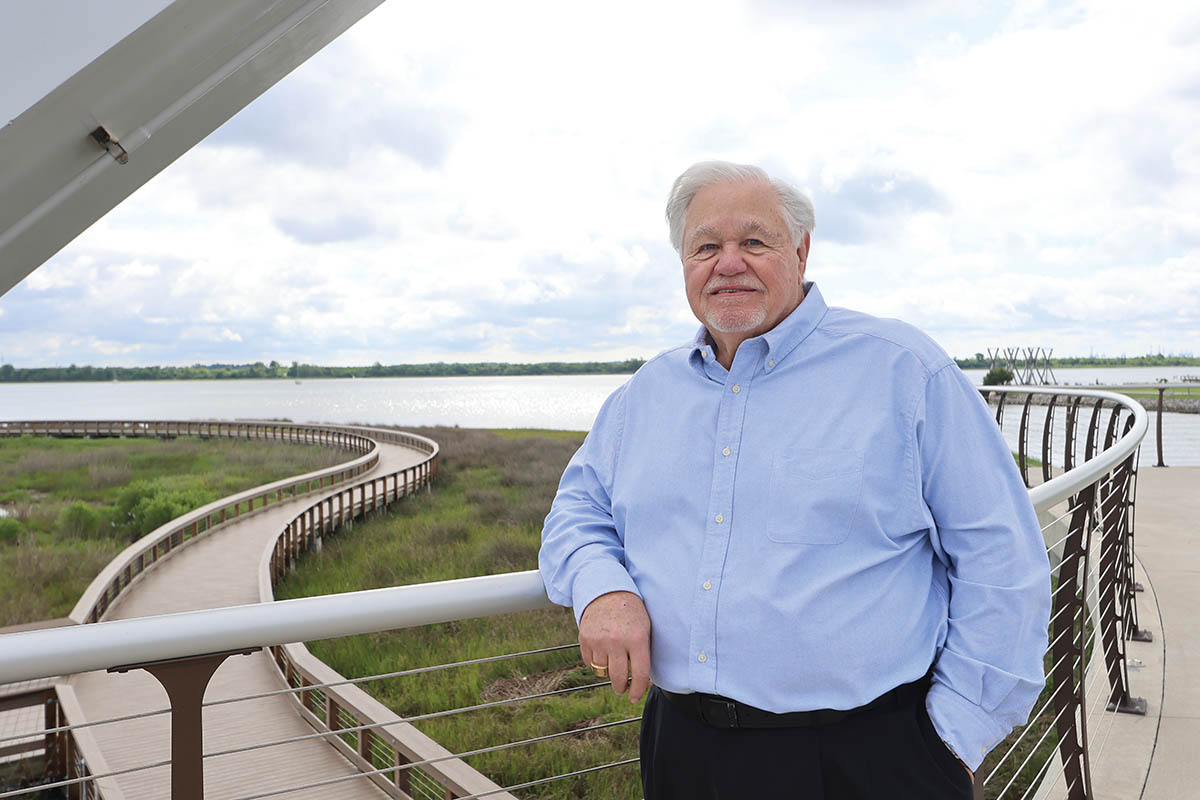
4. The Underdog: R. Keith Summey
When Keith Summey took the reins as North Charleston mayor in 1994, the city was reeling from the crippling Naval Base closure. Today, the North Area is reaping the benefits of Summey’s seven-term tenure (he retired at the end of 2023), including his steadfast vision to develop a sustainable, livable community with a revitalized Park Circle, Riverfront Park, and East Montague Business District. Crime and poverty-stricken areas remain factors, but Summey’s speedy, no-BS response to the 2015 Walter Scott shooting was a step in the right direction. With Boeing’s expanding presence, the Clemson Restoration Institute, Volvo parking a plant here, and thousands of technology-based jobs on the horizon, North Charleston’s population and economic growth continue to rise, along with the profile and reputation of a city that’s no longer in Charleston’s shadow.
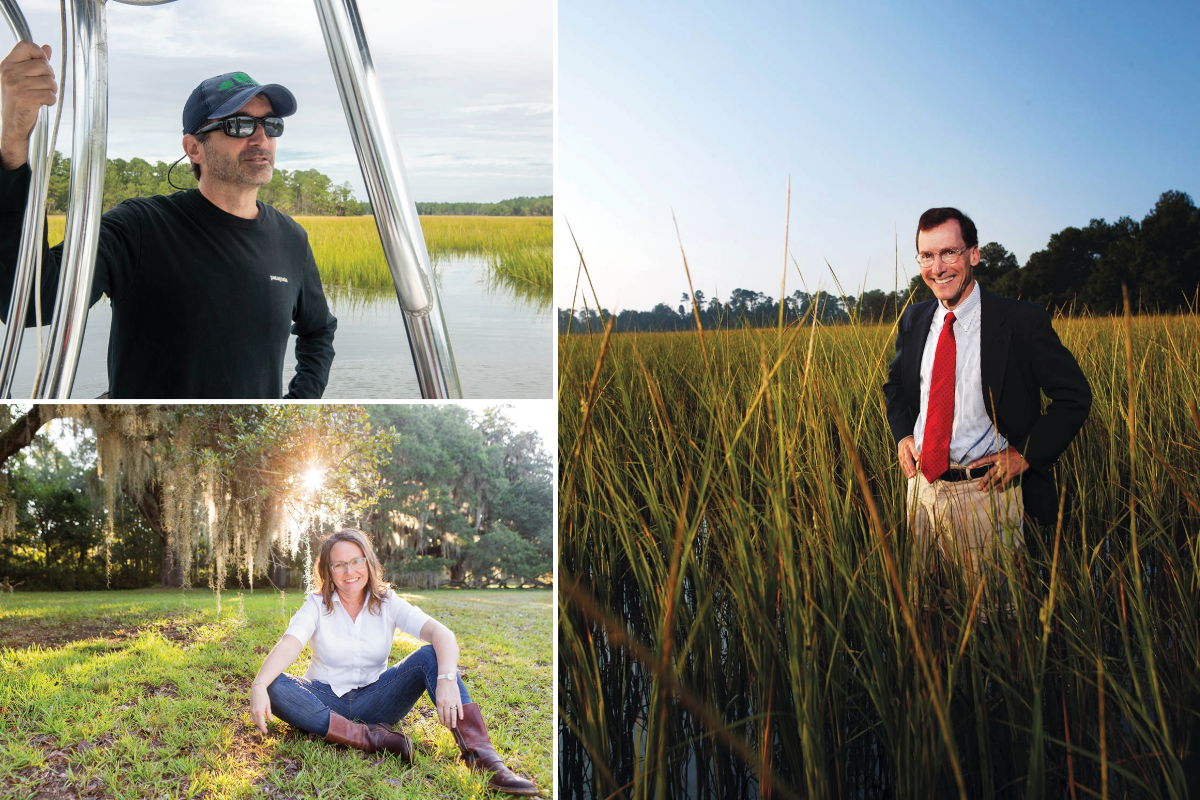
5. The Defenders: Dana Beach, Ashley Demosthenes, & Chris DeScherer
As new development pressures were mounting in the Lowcountry, Dana Beach cofounded the grassroots Coastal Conservation League (CCL) in 1989 to protect, well, our grass roots. For more than two decades, he built a formidable organization whose research, relentless lobbying, and smart approach to growth safeguarded the region’s prized natural resources, including wins against completing I-526 and preventing industrial hog farms from polluting our rivers. Joining CCL in conservation efforts, Ashley Demosthenes, the former head of Lowcountry Land Trust, strengthened the organization into its current prominent land conservation role, with an estimated total of 170,000 acres protected by December 2025. And if you look behind the curtain on most land and natural resource conservation efforts, you’ll find the legal wizards from Southern Environmental Law Center at work. Chris DeSherer and his team deserve kudos and credit for taking conservation to the courts, safeguarding land, livability, and the natural resources that make our region beautiful and healthy.
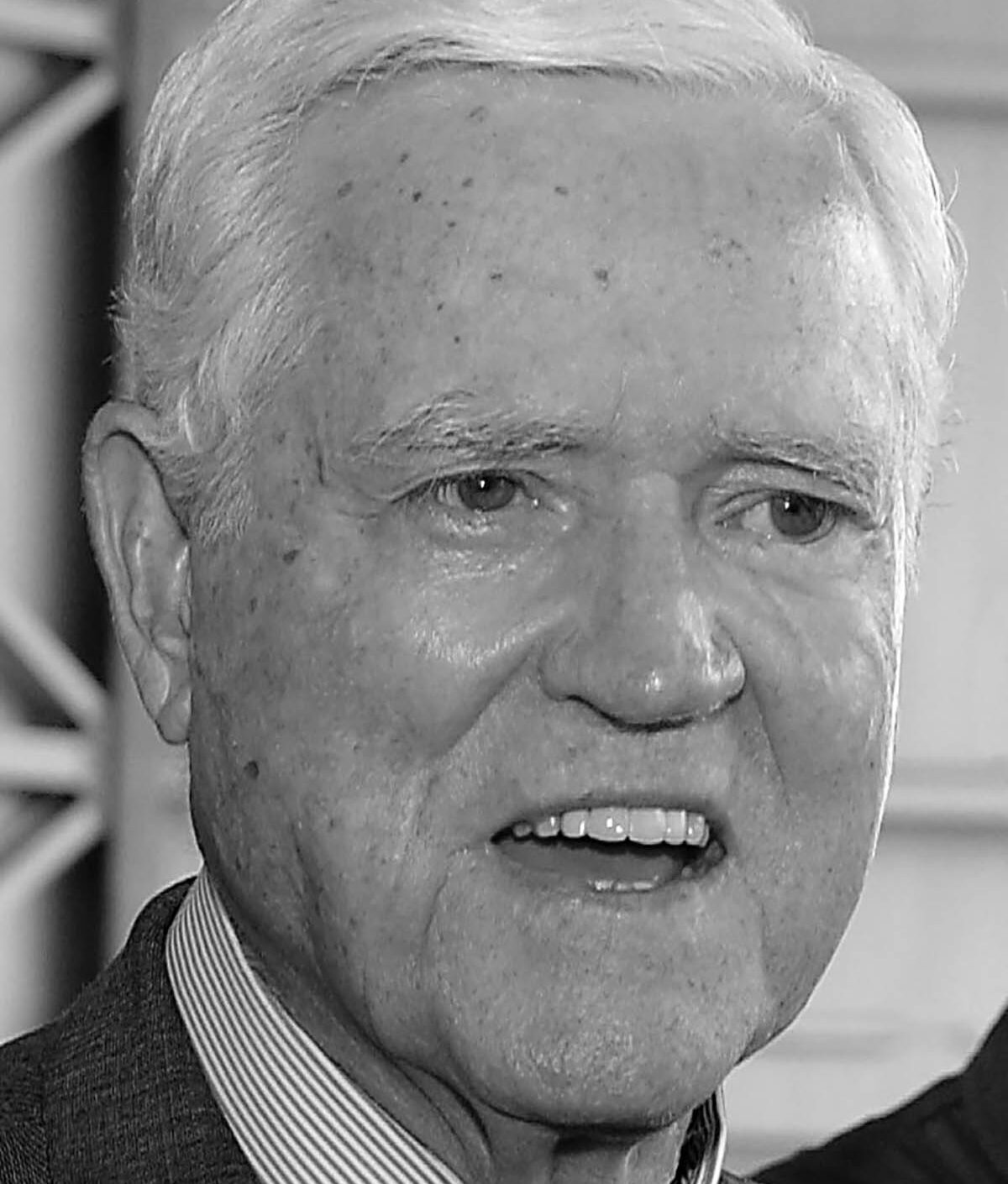
6. The Senator: Ernest “Fritz” Hollings (1922-2019)
Love the ACE basin? Prefer clean oceans to polluted ones? Know anyone who’s benefitted from cancer care at MUSC? Then tip your hat to our influential, long-serving (1966–2005) US senator, who helped secure federal designation and funding for the ACE Basin National Wildlife Refuge and the ACE Basin National Estuarine Research Reserve; who authored the Oceans Dumping Act (1976) and Ocean Act (2000) and brought NOAA marine labs to South Carolina; and who procured funding for the Hollings Cancer Center at MUSC. Hollings, a Democrat who served as governor of South Carolina from 1959 to 1963 when the legislature first raised the Confederate flag over the Statehouse, became a prominent advocate for its removal, starting in the 1990s.
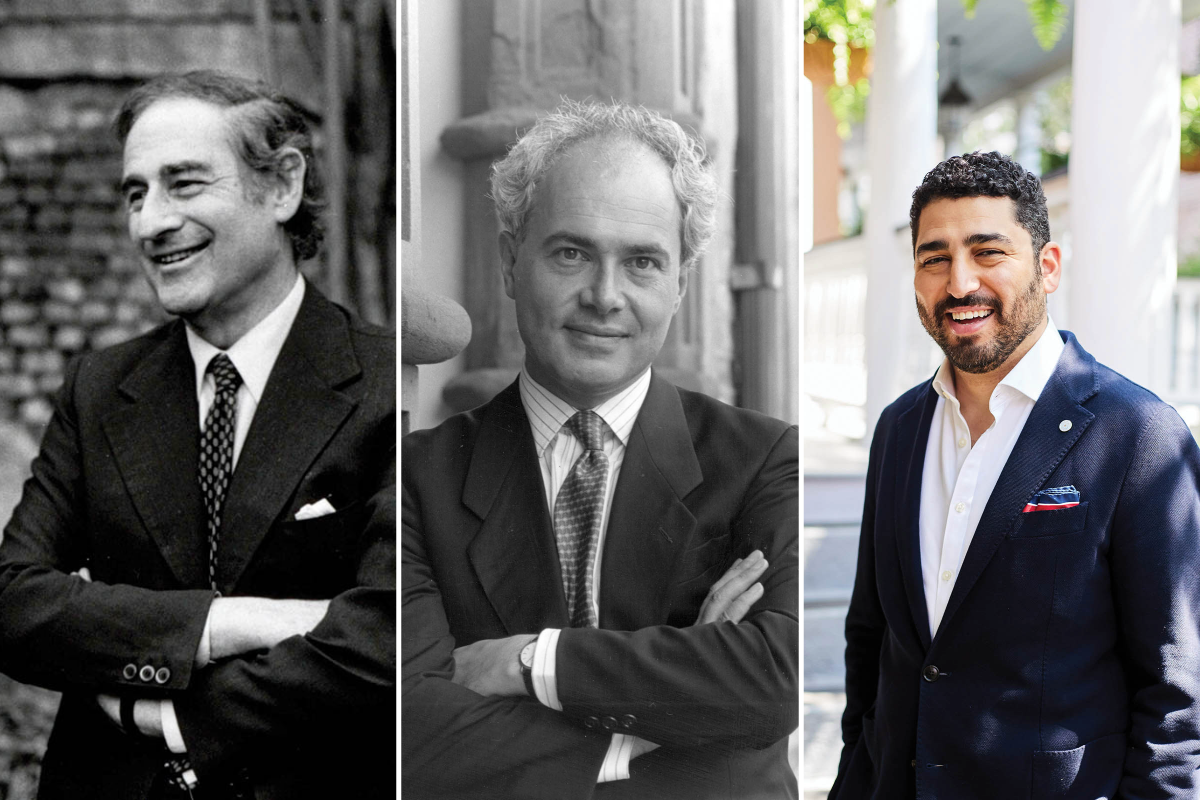
7. The Spoletians: Gian Carlo Menotti (1911-2007), Nigel Redden, & Mena Mark Hanna
Charleston’s annual 17-day arts indulgence is our cultural crown jewel, and Gian Carlo Menotti its crown bearer. The Italian-born, Pulitzer Prize-winning composer created the Festival dei Due Mondi in the sleepy town of Spoleto, Italy, in 1958, then established its American counterpart here in 1977. Though Menotti parted with the Charleston festival in 1993, his vision and creation remains vibrant, thanks to the able and steady hand of Spoleto’s general manager-turned-director Nigel Redden, who kept the festival in the black while raising the bar on programming and raising the curtain on capital improvements to the city’s premier venues, including the Dock Street Theatre and Festival Hall. Appointed director in 2021, Mena Mark Hanna has sharpened Spoleto’s multicultural edge, building on its legacy of pushing boundaries and broadening the conversation.
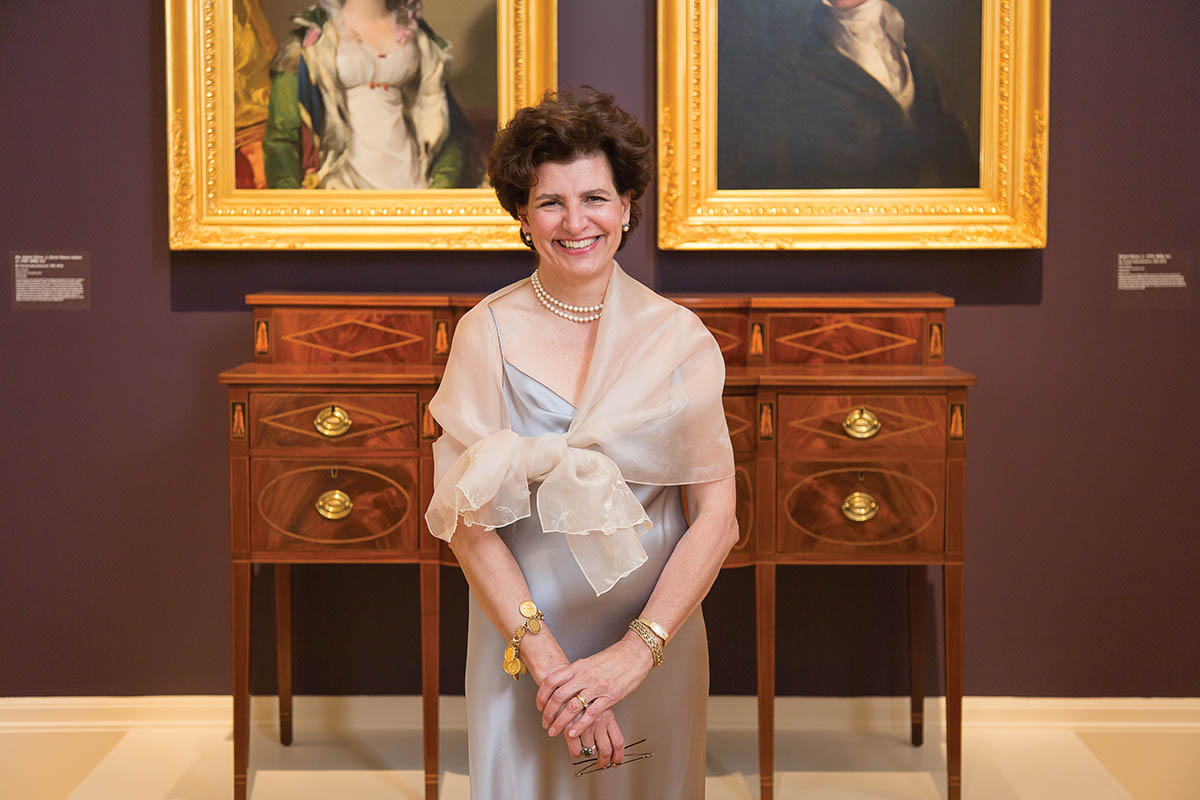
8. The Culturist: Angela Mack
When Angela Mack arrived as assistant curator at the Gibbes Museum of Art in 1981, the Meeting Street institution seemed to be hiding its light under its Tiffany dome. Despite a respected Charleston Renaissance (1915–1940) collection, the Gibbes lacked the gravitas it now has in the American art landscape. Thanks to her savvy, risk-taking, and extensive knowledge of Southern art, Mack was made chief curator and then executive director in 2008, demonstrating she not only understands the power of beauty and art, but organizational management. She oversaw a successful $17 million capital campaign that restored the grandeur and function of the original historic building while expanding classrooms and gallery space, including a new Mary Jackson Gallery and the Lenhardt Garden, as well as the acquisition of an adjacent building. Mack has achieved her goal of “inserting the South into the story of American art” and made sure more voices, especially those of Black artists, are represented in that storytelling. Through acquiring work by Fred Wilson, Jasper Johns, and William H. Johnson, among others, she will leave a permanent collection and museum that is more provocative, diverse, and inclusive when she retires this month.
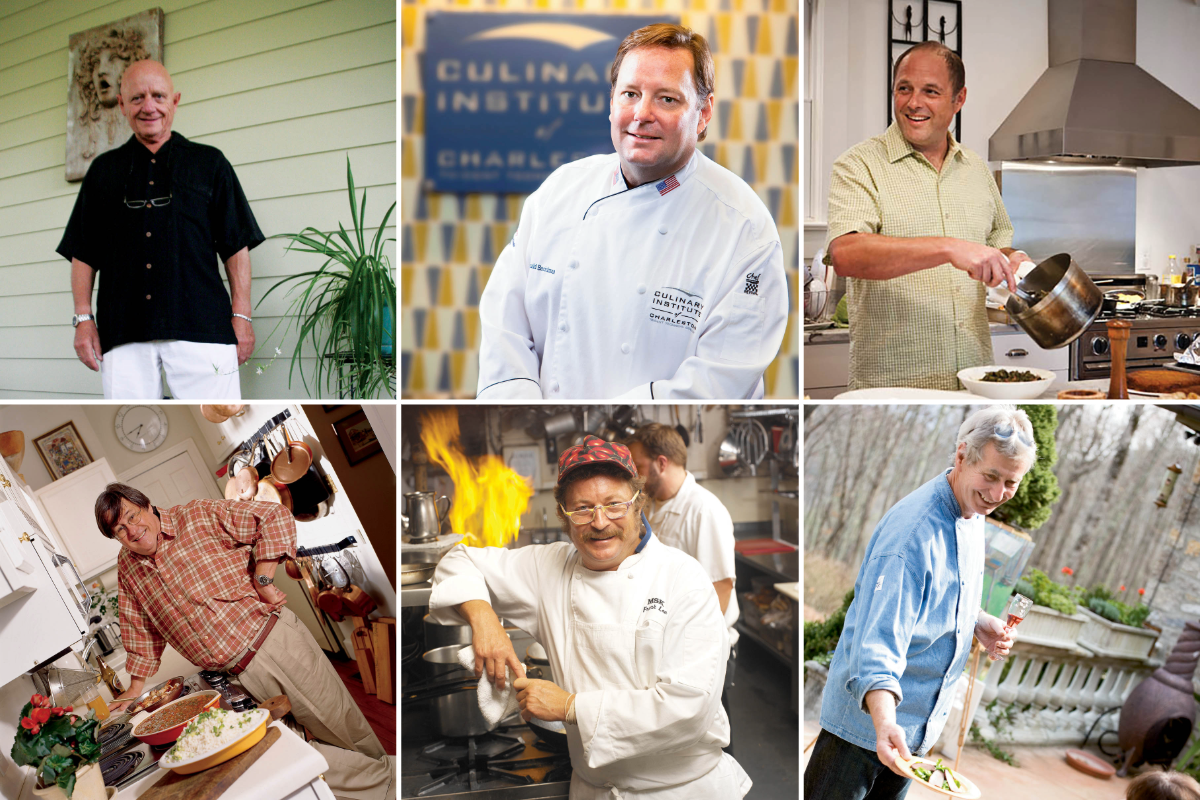
9. The Old Guard Chefs: Franz Meier, Chris Weihs, Louis Osteen (1941-2019), Donald Barickman, Frank Lee, & Robert Stehling
Charleston’s current restaurant boom had a prep-kitchen, so to speak, back in 1976, when German-born Franz Meier and Chris Weihs (aka the “European backbone” of the city’s culinary scene) purchased the Colony House and raised the bar for fine dining, as they did again in 1987, opening the then-revolutionary Carolina’s. Other trail- and palate-blazing restaurants such as Robert’s, Marianne’s, and Restaurant Million, soon followed. By the late ’80s and early ’90s, Louis Osteen, Donald Barickman, and Frank Lee put a new spin on our regional cuisine. Dubbed the “spiritual general” of local chefs by The New York Times, Osteen opened Louis’s Charleston Grill in 1989, later earning the state its first James Beard Best Chef: Southeast award for his restaurant Louis’s at Pawleys Island. At Magnolias, Barickman refined the culinary genre into “Uptown Down South,” and Lee further elevated local cuisine first at Colony House and then SNOB. Robert Stehling and his Hominy Grill put Charleston and our “good-for-you grits” on the map as Best Chef in the Southeast winner in 2008.
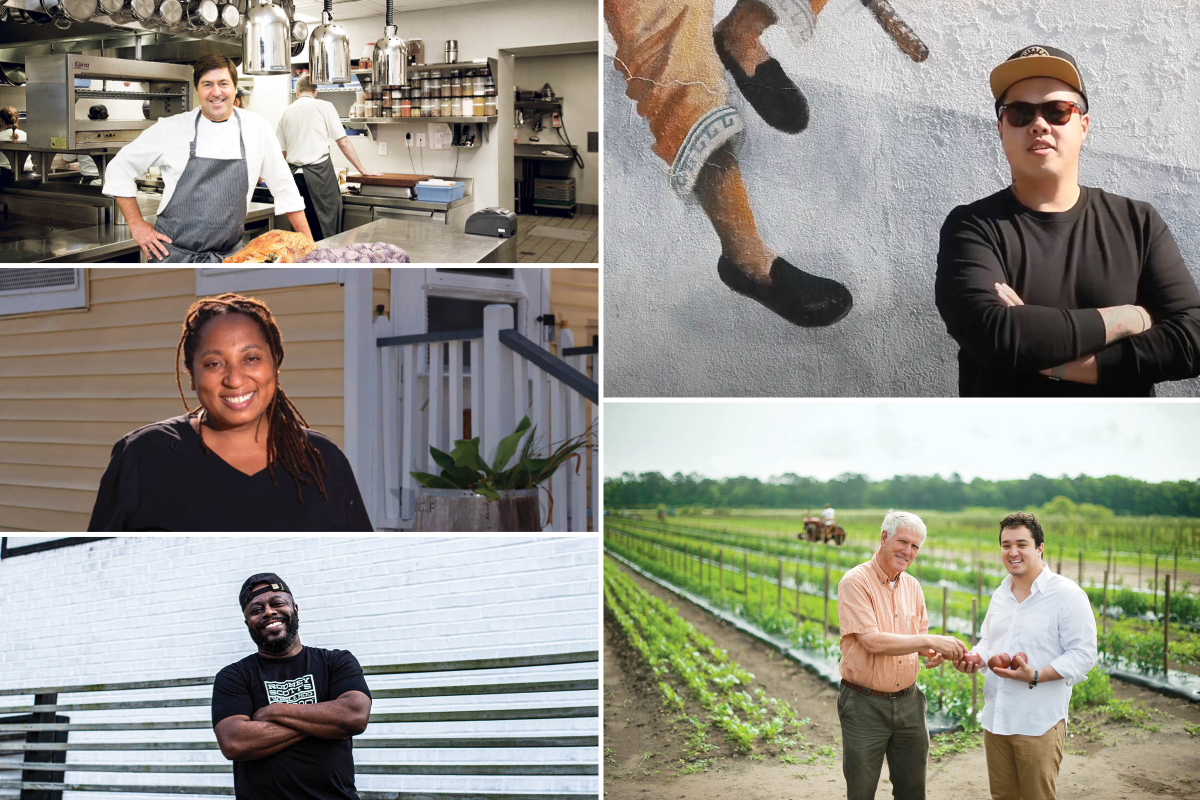
10. The New Guard Chefs: Mike Lata, Jason Stanhope, Rodney Scott, Shuai Wang, & Bintou N’Daw
It’s hard to keep count. With multiple nominations and prestigious James Beard Award wins between them, plus a Top Chef finalist, Charleston’s culinary all-star lineup just keeps getting brighter, and it couldn’t happen to nicer, more generous people. Admittedly, our list leaves many out, but inarguably Mike Lata, Jason Stanhope, Rodney Scott, and more recently Shuai Wang and Bintou N’Daw have not only spoiled us with meal after mouthwatering meal, they’ve upped the ante in the F&B community more broadly. Sure, the downside is that it’s hard to get a reservation, but the upside is that chefs like Wang at Park Circle’s Asian-accented Jackrabbit Filly and King BBQ and N’Daw serving up West African fare at the East Side’s Bintü Atelier have room to experiment and expand our palates.
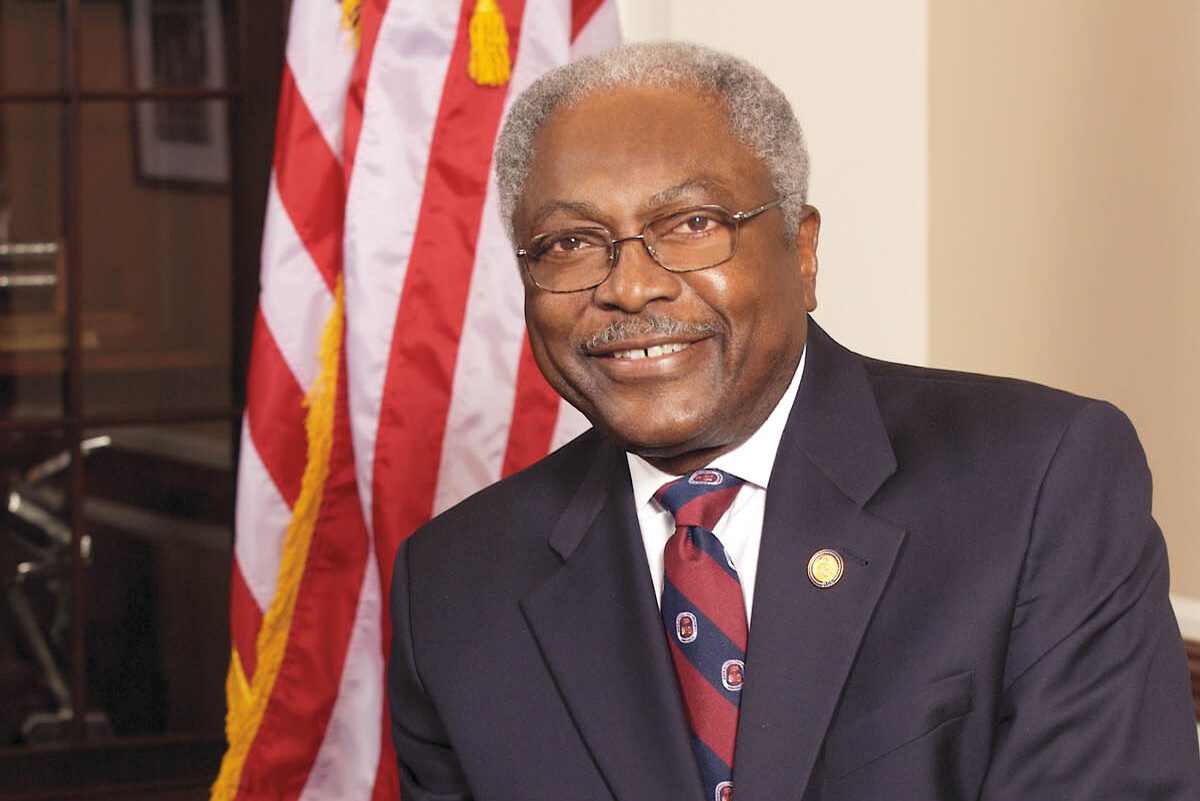
11. The Statesman: James E. Clyburn
These days, this South Carolina State College alum—who was once jailed for participating in civil rights sit-ins—takes his seat in the US House of Representatives, as an influential Democrat and the former Majority Whip (2007-2011). As the highest-ranking African American congressman and South Carolina’s first since 1897, Jim Clyburn is renowned as a leader and consensus builder. He has led the charge for increasing Pell grants for higher education, investing in science and math programs and historic preservation at historically Black colleges and universities, and encouraging economic development through Empowerment Zones and investment in green technology. He remains outspoken on social justice, civil rights, and anti-poverty issues, including funding for community health centers providing care to the uninsured.
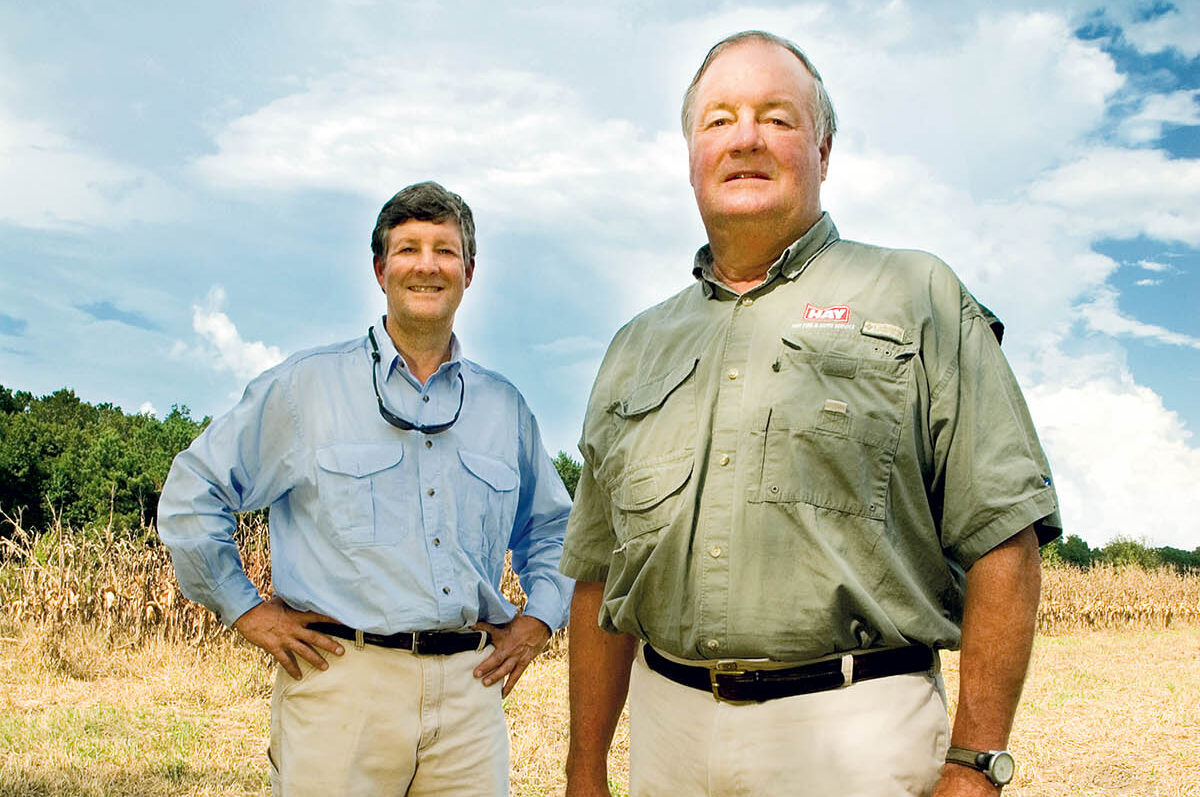
12. The ACEs: Hugh & Charles Lane
From the ACE Basin to East Edisto and beyond, the Lane brothers have quietly and persistently toiled to protect vital land, conserving some hundreds of thousands of acres of green space. “Nobody has done more for conservation in the Lowcountry,” says Coastal Conservation League founder Dana Beach. Ducks Unlimited, the Nature Conservancy, the Lowcountry Open Land Trust, the Southern Environmental Law Center, the Gaylord Donnelley Foundation—you name it, a Lane has led it. Hugh Lane was instrumental in getting the SC Conservation Bank Act passed, which has to date invested over $300 million in protecting land. As chairperson of the ACE Basin Task Force from its inception in 1989 until 2004, Charles blazed the trail for successful, large-scale private/public conservation collaboration, creating a model that’s emulated nationwide.
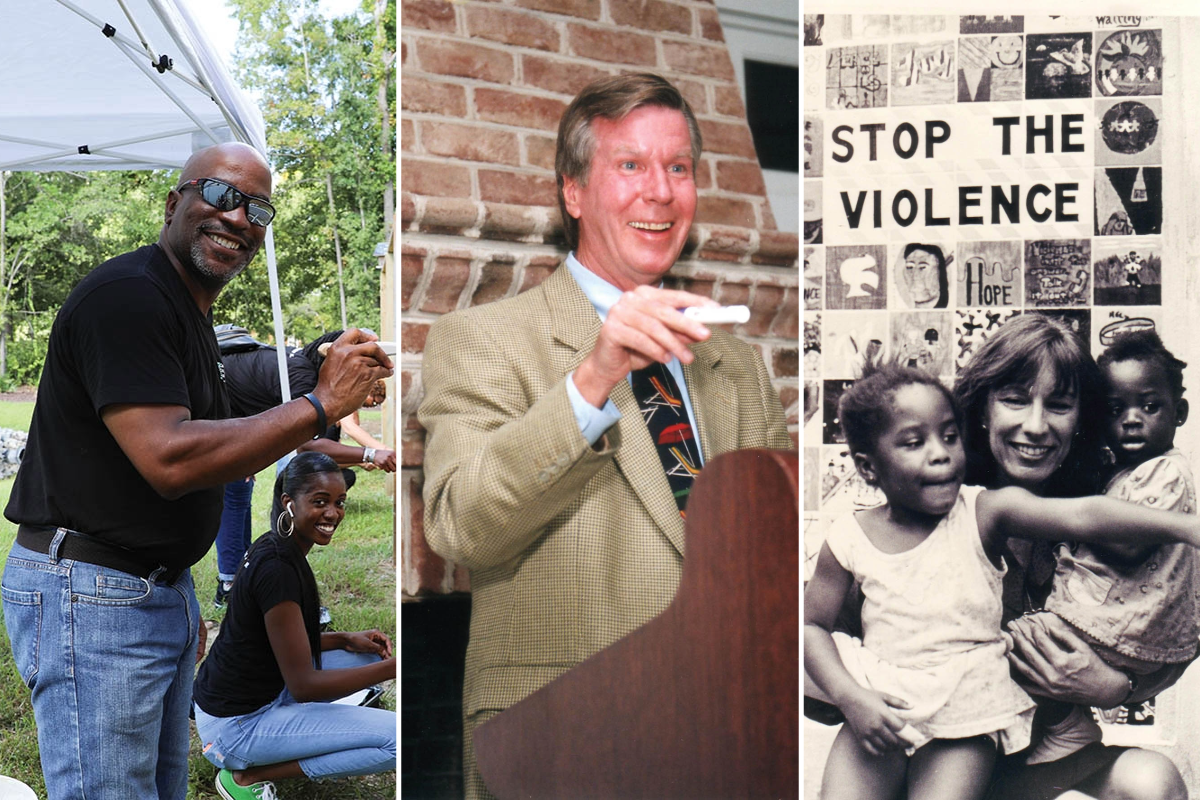
13. The Foundation Builders: Ruth Heffron, Richard Hendry, & Darrin Goss Sr.
Now, she’s a landscape painter, but back in 1981, Ruth Heffron was shaping Charleston’s charitable landscape. The Coastal Community Foundation (CCF), then with a mere $21,000 in assets, hired the young protégé to amp up philanthropy in the Lowcountry. For the next 16 years, she championed the concept of aggregating and leveraging local resources to meet local needs at Rotary lunches, law firm and stock brokerage meetings, and neighborhood associations. During her tenure and after, Charleston’s charitable sector blossomed. Richard Hendry, the foundation’s longest-serving staffer, refined CCF’s grant processes, supported the growth of emerging and existing charitable programs in the region, and sustained impactful grantmaking through his four decades with the organization. Today, under the leadership of Darrin Goss Sr., the Coastal Community Foundation, the largest in SC, has given more than $425 million to charities across the Lowcountry.
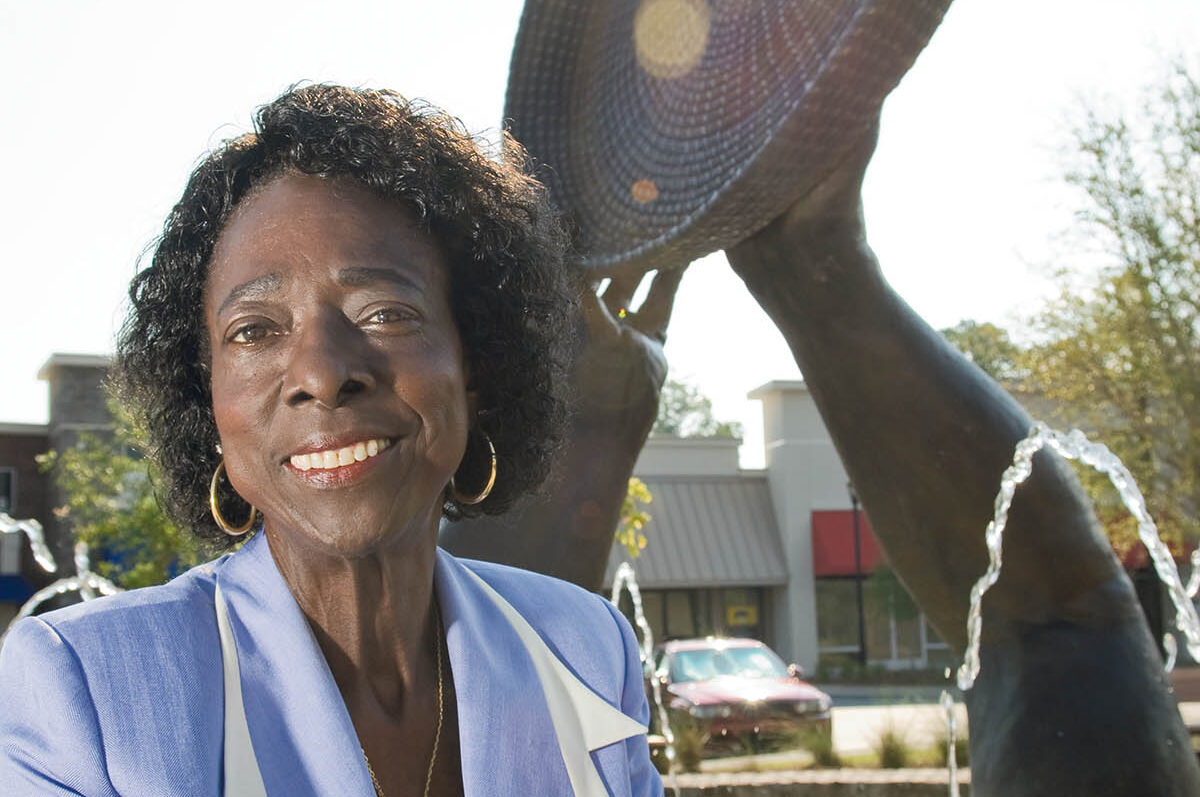
14. The Level Head: Thomasena Stokes-Marshall (1943–2023)
Mount Pleasant is no longer a small, snoozy suburb, nor are its politics sleepy or always pleasant. But throughout her 17-year tenure as the town’s only African American council member and longest-serving elected official, Thomasena Stokes-Marshall was a voice of reason, speaking up for long-standing communities, many of them historically Black, getting swallowed by sprawl and development. She advocated for the town’s sweetgrass basket weavers and Gullah heritage, its seniors, affordable housing, and economic development. Her backbone (as a retired New York City cop) and wisdom directed the council’s course toward more reasonable solutions at numerous junctures. As then-Mayor Linda Page remarked while Stokes served on Town Council, “Thomasena is not just a voice of diversity, she’s a voice of levelheadedness.”
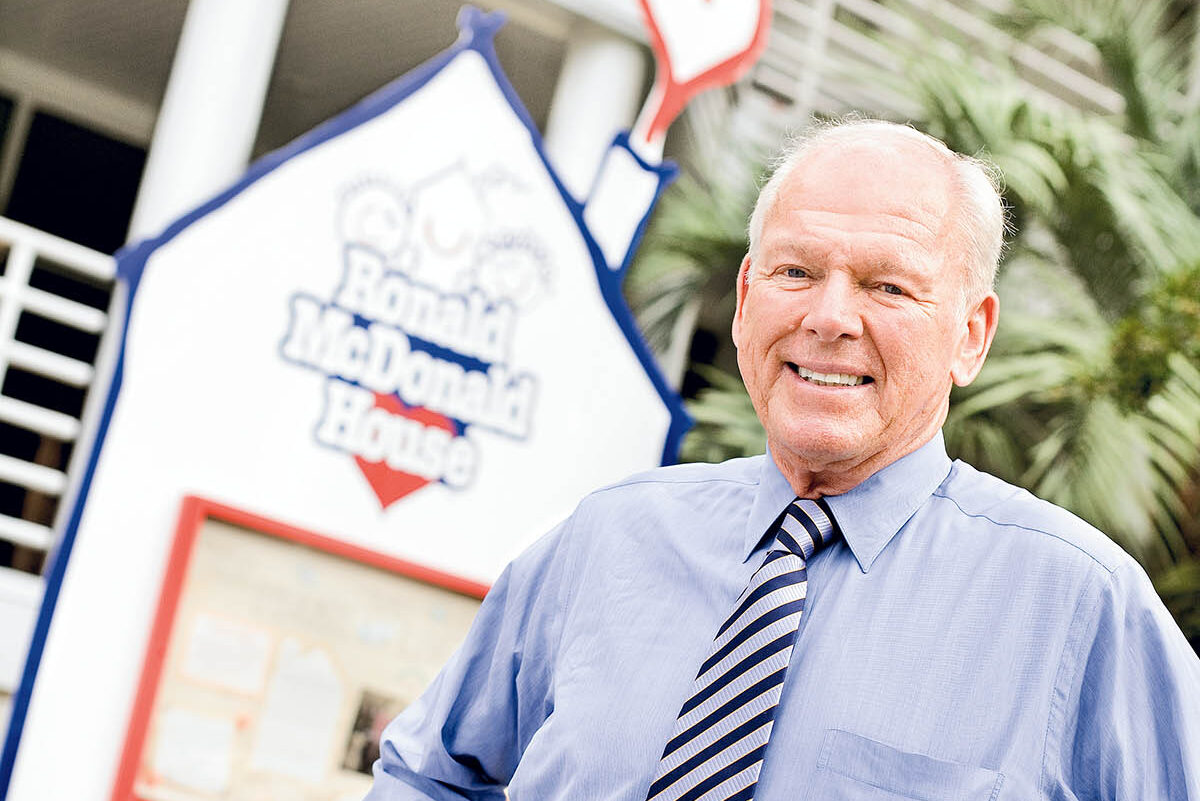
15. The Doc: Charles Darby Jr. (1933–2024)
If it takes a village to care for a child, every village needs a Charles Darby. A Charleston native, the respected pediatrician and MUSC professor emeritus was the medical muscle behind creating and developing MUSC Children’s Hospital into a nationally renowned institution that has since expanded into a world-class new facility (see #36). MUSC’s Children’s Research Institute—drawing international researchers and mega grants—bears his name. Through his leadership with Trident United Way’s Success-by-Six, the Boeing Center for Promotion of Healthy Lifestyles in Children and Families, and numerous other initiatives, Darby advanced the well-being of Charleston’s future—our children.
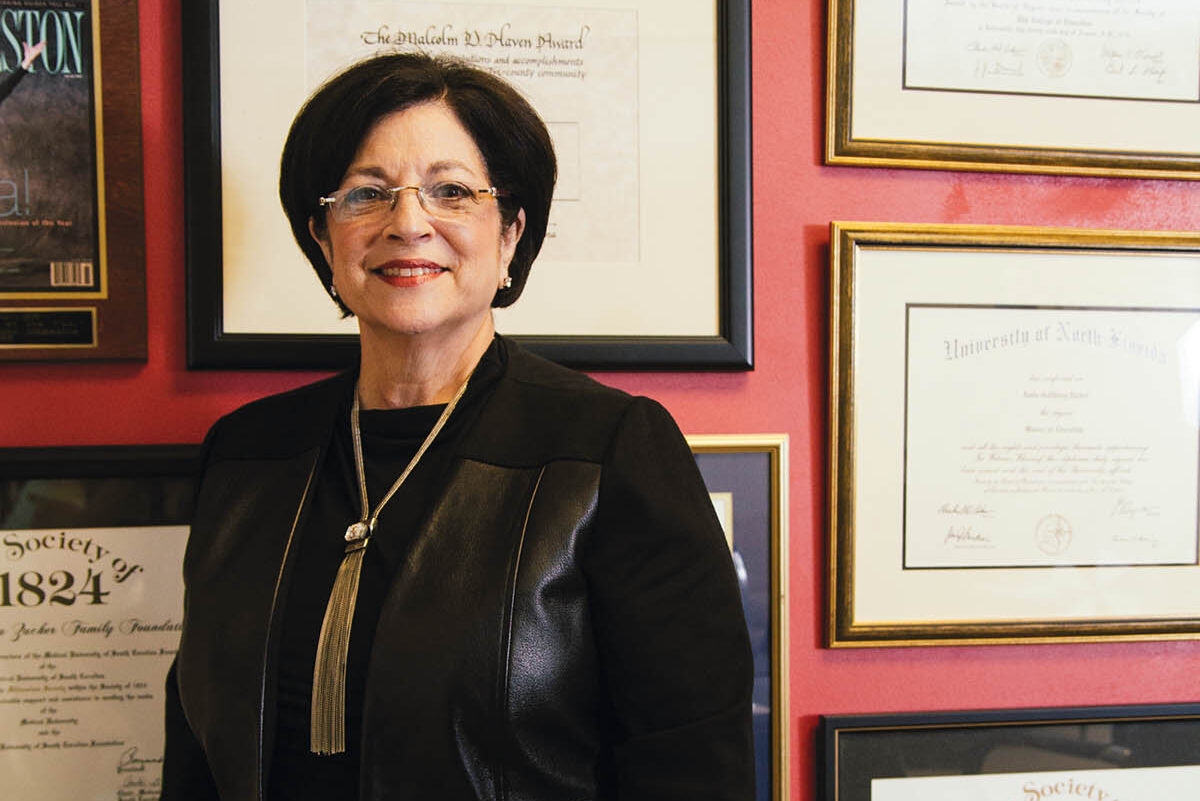
16. The Dynasty: Anita Zucker & the Zucker Family
As business leaders, board members, philanthropists, and hands-on, roll-your-sleeves-up volunteers for numerous nonprofits and causes, the Zucker family lives out a service-oriented generosity. A visionary inventor and holder of hundreds of patents, Jerry Zucker founded and built the InterTech Group, a Fortune 500 company that his wife Anita, a former teacher, heads. After Jerry’s untimely death from brain cancer in 2008, she and their children have not only carried forth his business acumen and philanthropy, they have expanded the Zucker family impact, focused largely on improving education and economic development across the region. From support of Trident United Way and the Boy Scouts to The Citadel, MUSC, the College of Charleston, and Trident Tech, their impact and generosity continues to lift the Lowcountry in untold ways.
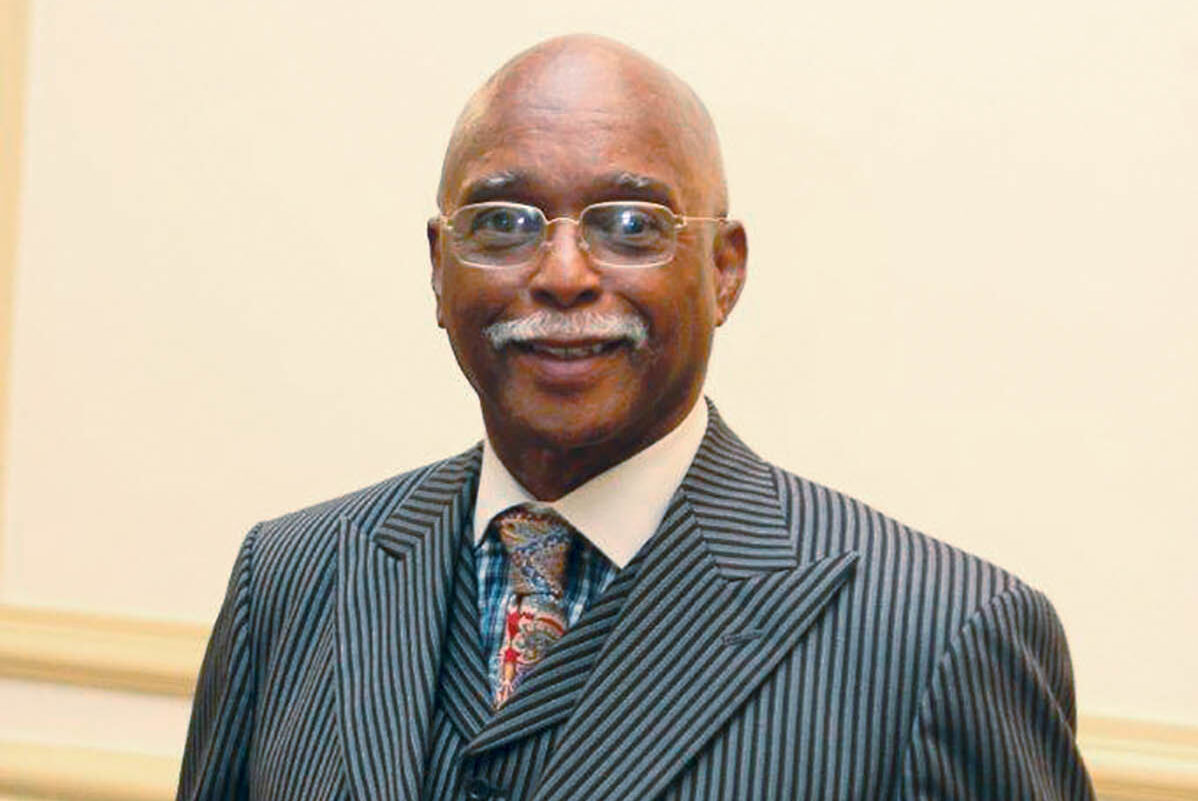
17. The Closer: Dr. Thaddeus Bell
A four-time world champion sprinter in Masters Track and Field, Thaddeus Bell (named one of SC’s “athletes of the century” by the Post and Courier) knows how to narrow a gap and hold a lead. But as a family physician; founder of a rural health clinic in Cross, South Carolina; and former director of the Office of Diversity at MUSC; he also knows how wide a gap can be—particularly the health disparity gap for African Americans, who are more likely to have diabetes, heart disease, and limited access to care than their white counterparts. Dr. Bell has spent his career campaigning for improved health literacy and access for minorities, including wellness and fitness programs, many of which he has personally led. Whether speaking out for a bike/pedestrian lane over the Cooper and Ashley rivers, giving health tips on the radio, or leading youth fitness seminars, Dr. Bell is in this race to win.
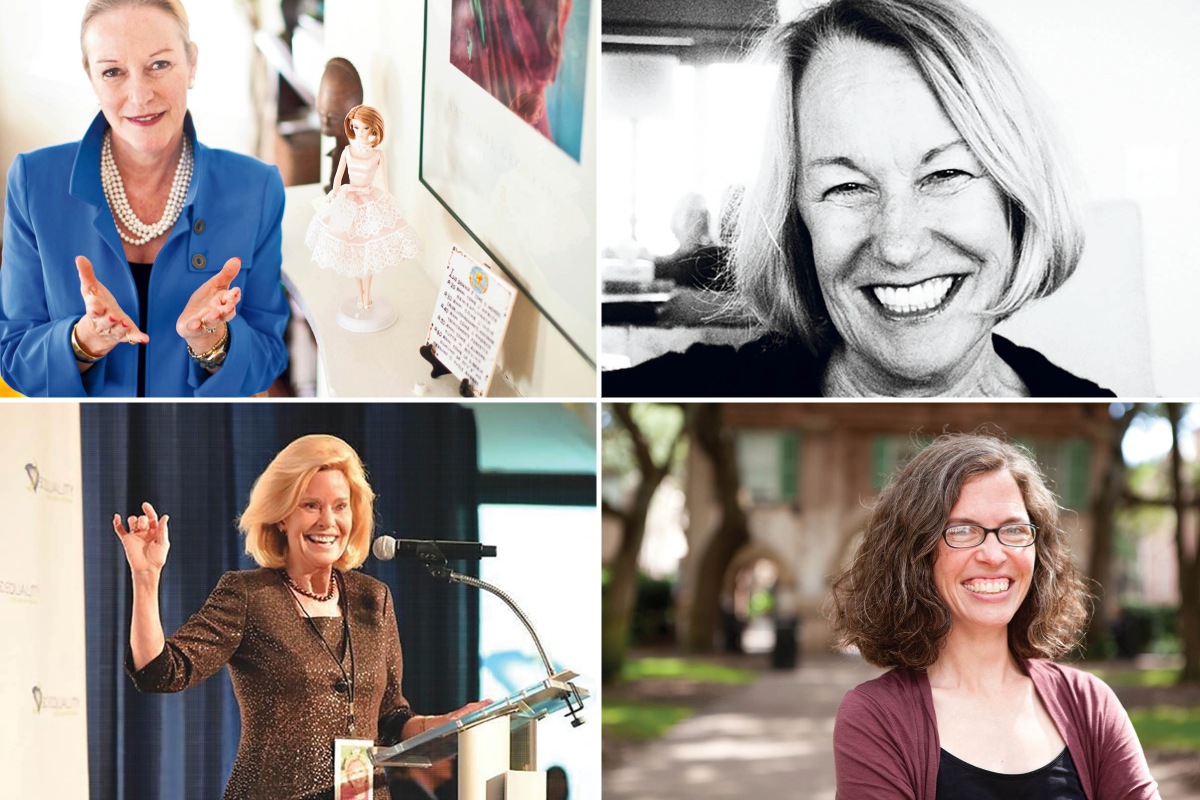
18. The Dames: Jennet Alterman, Nikki Hardin, Linda Ketner, & Alison Piepmeier (1972–2016)
When English professor Alison Piepmeier rolled into CofC in 2005 as the college’s first full-time Women’s and Gender Studies director—with her bold, unapologetically feminist spirit, symbolized for some by her “I (Heart) Vaginas” bumper sticker—the Cougars may not have been ready. She quickly became beloved by students and deeply respected by the wider community for her fearless, tireless work in making feminism a proud, everyday word for people of all genders and sexual identities. Tragically, Piepmeier passed away from a brain tumor on August 12, 2016. She had plenty of backup, including three fearless feminists who served on her advisory committee: Linda Ketner, Jennet Alterman, and Nikki Hardin. As a philanthropist, community leader, and former Democratic Congressional candidate, Ketner has put her money and her heart into advocating for women’s issues and LGBTQ rights, cofounding the Alliance for Full Acceptance in 1998 and the South Carolina Equality Coalition in 2005. Alterman, former director of the Center for Women and founding board chair of the Women’s Rights and Empowerment Network, and Hardin, founder and former publisher of Skirt! magazine, have been galvanizing awareness and action on women’s issues across the region for years, giving voice and volume to the 52 percent.
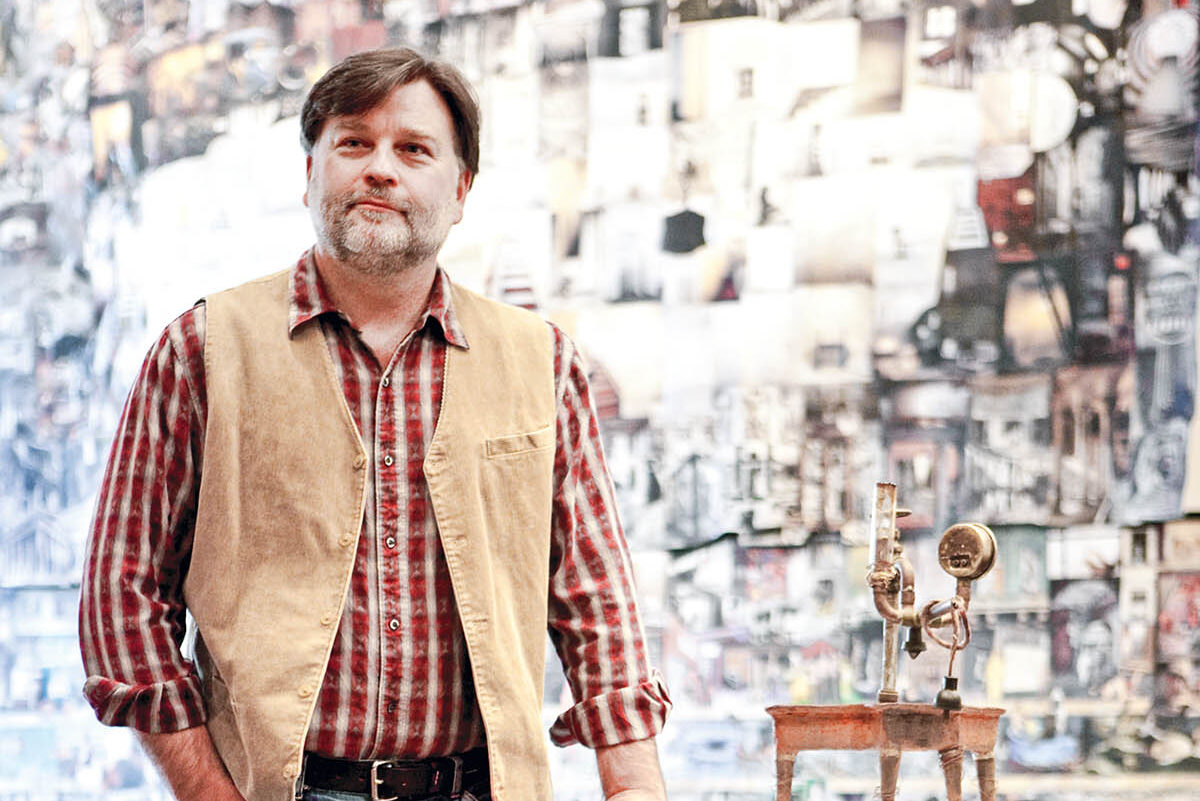
19. The Outsider-Art Insider: Mark Sloan
If you’ve ever grabbed a coffee at The Daily, where the formerly drab parking lot is an inspiring outdoor art experience first enhanced by a dazzling Shepard Fairey mural, you can thank Mark Sloan. Throughout his 26-year tenure helming the Halsey Institute of Contemporary Art, he challenged viewers—and the Holy City as a whole—by presenting artists whose work lies outside of the mainstream, and even out of the gallery and into the streets. With bold vision and relentless curiosity, he transformed what had been an overlooked sleeper of a contemporary art gallery into a fully formed “Institute” with a robust membership and impressive roster of exhibitions that keep raising the bar (and happily raising eyebrows) for Charleston’s broader art scene.
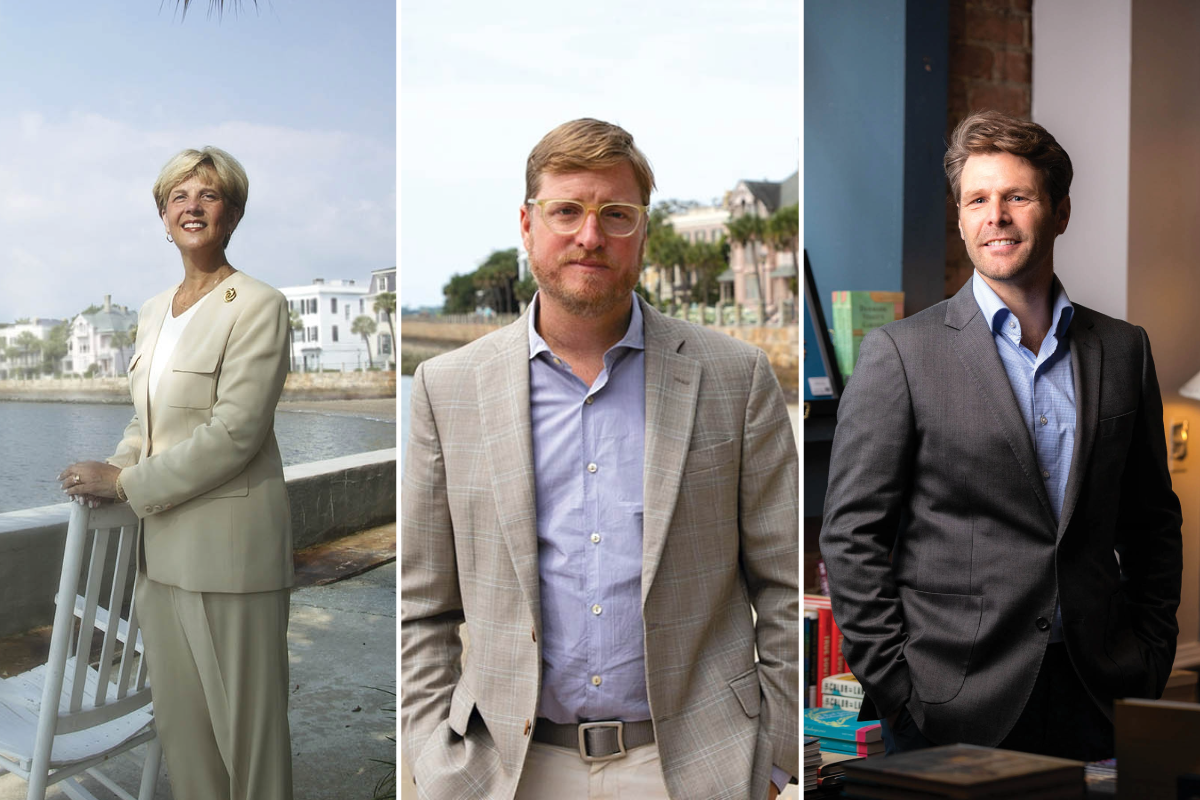
20. The Preservationists: Kitty Robinson, Winslow Hastie, & Brian Turner
Charleston simply would not be a top tourism destination, a foodie haven, or even a hip tech hub, without the visionaries who have spent endless (and we mean endless) hours at BAR and zoning board meetings, protecting the city’s beloved and famed old buildings and advocating for policies that address regional issues like mobility, affordability, gentrification, sea-level rise, and tourism management. Kitty Robinson, Historic Charleston Foundation’s (HCF) consummately well-mannered, cheerful, and strategic stalwart led the way from 1971 to 2017, including 17 years as president and CEO, in elevating what “preservation” means for a living, historic city, a vision that current CEO Winslow Hastie continues to shape and expand. While HCF often takes the advocacy lead, the Preservation Society of Charleston, under the leadership of Brian Turner, rallies its powerful grassroots membership base, and all deserve credit for collaborating effectively to protect what makes Charleston Charleston.
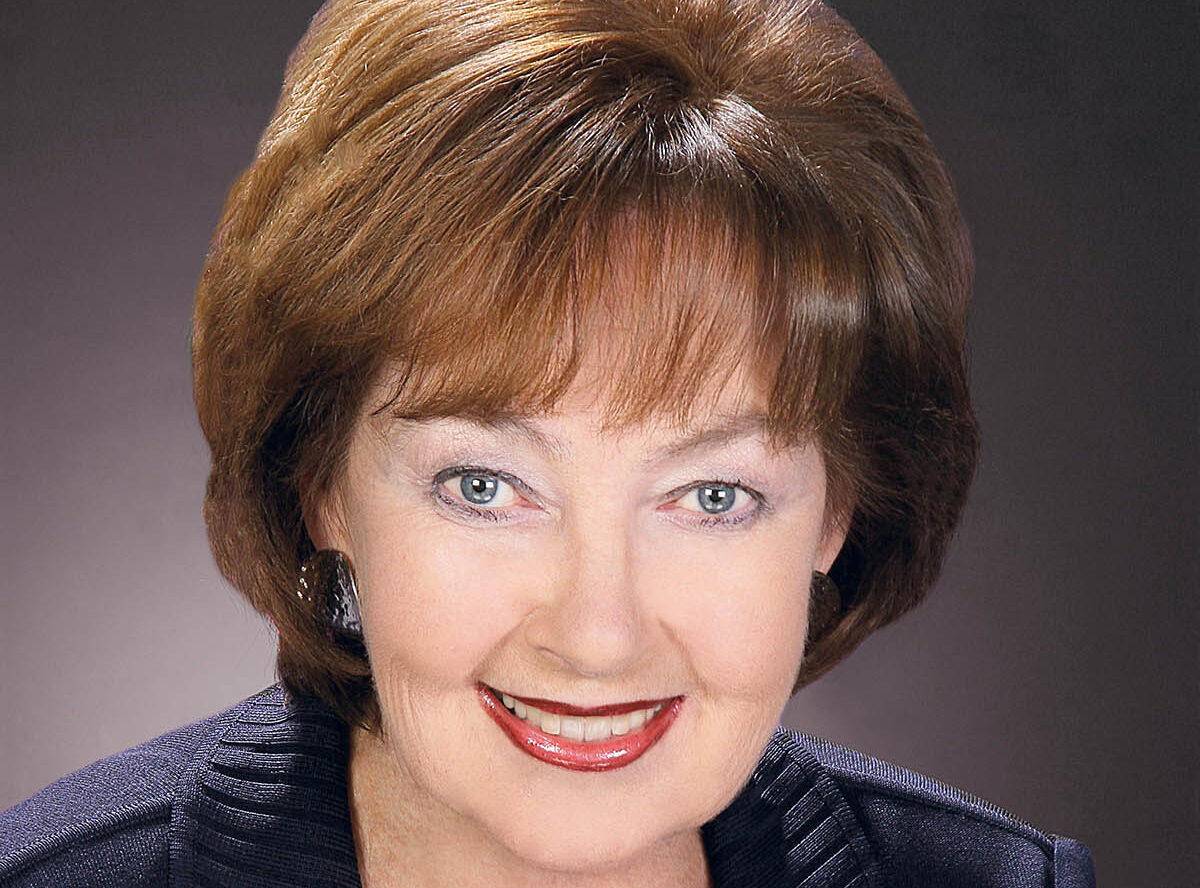
21. The Catalyst: Mary Thornley
Boeing loves Mary Thornley. From the outset, the aeronautic giant’s expanding South Carolina footprint hinged on one thing: the assurance of skilled labor. Under Thornley’s leadership, Trident Technical College (TTC) has delivered. Her own career there—beginning as an adjunct instructor in 1974, then moving up the ranks to full-time instructor, program coordinator, department head, VP for academic affairs, and president from 1991 to 2024—mirrors the path that TTC offers students: get the basics, work hard, excel. Enrollment has more than doubled to 16,000-plus students since 1991, as has the number of academic programs and the physical footprint throughout the Tri-county. To the innovative Thornley, the math is simple: education equals opportunity, so she finagled whatever it took (short-term, skills-based training, dual-credit high school courses) to realize TTC’s mission to be “a catalyst for personal, community, and economic development by empowering individuals through education and training.”
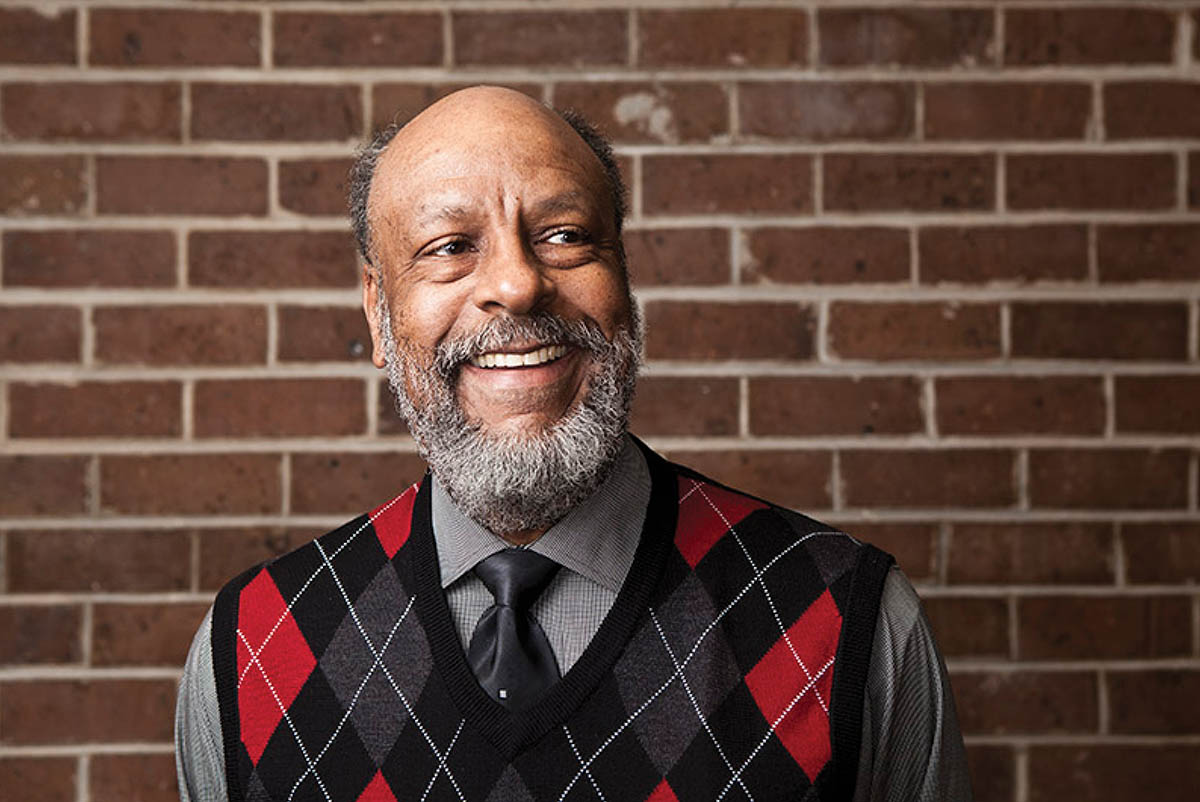
22. The Historian: Bernard E. Powers Jr.
For 26 years, Dr. Bernie Powers served as a history professor at the College of Charleston, teaching courses in American, African American, and African Diasporic history. His stepping down in 2018 only meant stepping into numerous other roles. “I get an F in retirement,” he once told the college’s communications team. Powers was instrumental in championing the International African American Museum, from its earliest conceptual days until recently rolling off as a board member, including serving a stint as IAAM’s interim president and chair of its programs committee. The author of Black Charlestonians: A Social History 1822-1885, he’s published extensively in scholarly realms and coauthored We Are Charleston: Tragedy and Triumph at Mother Emanuel, following the 2015 shootings. As director of the college’s Center for the Study of Slavery in Charleston and as liaison for CofC’s work with the national Universities Studying Slavery consortium, Powers has yielded a quiet, persuasive power in shifting the narrative on how we understand our complicated history.
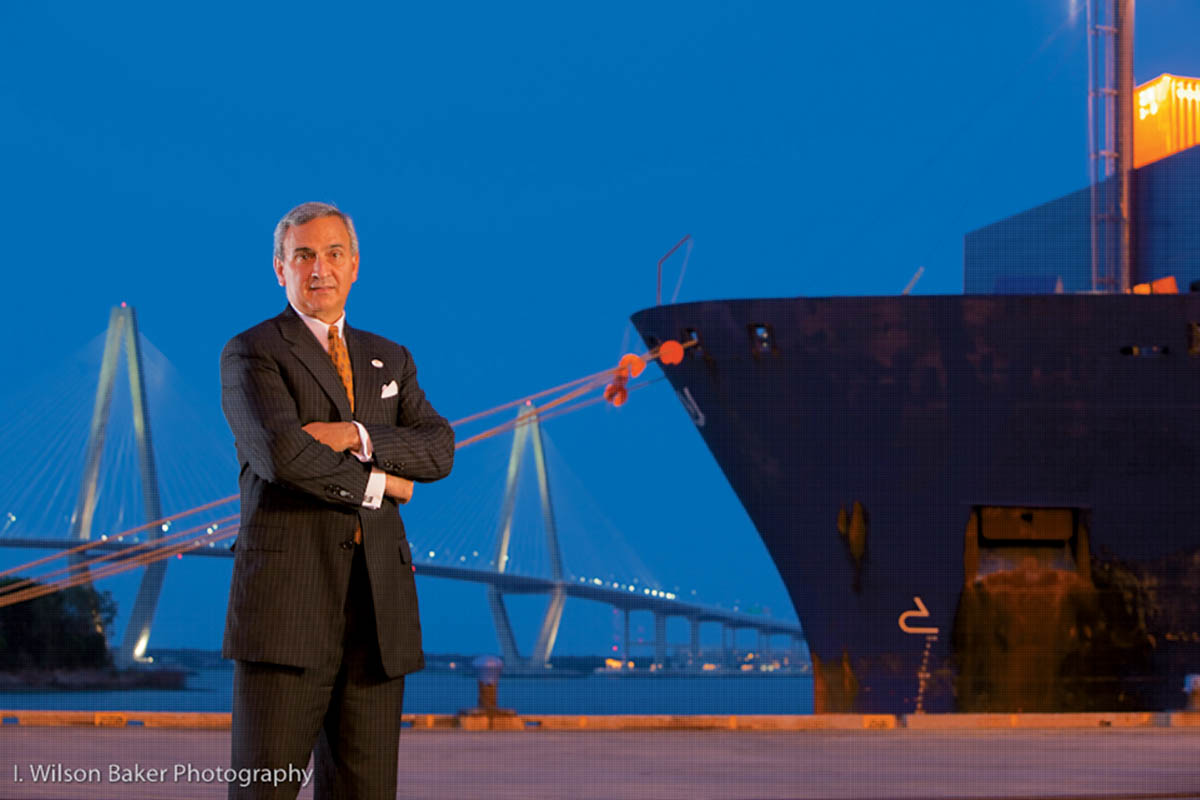
23. The Harbor Pilot: Jim Newsome
As president and CEO of the South Carolina Ports Authority from 2009 to 2021, Jim Newsome’s ship kept sailing in, keeping SC Ports in the top 10 US-operating container ports, despite shifting economic tides and occasionally choppy waters. While overseeing the import/export operations in Charleston, Georgetown, Dillon, and Greer—that today account for a $87 billion annual impact and counting for the region and state—Newsome enhanced operations and expanded the port’s cargo base, more than doubling volume over a decade.
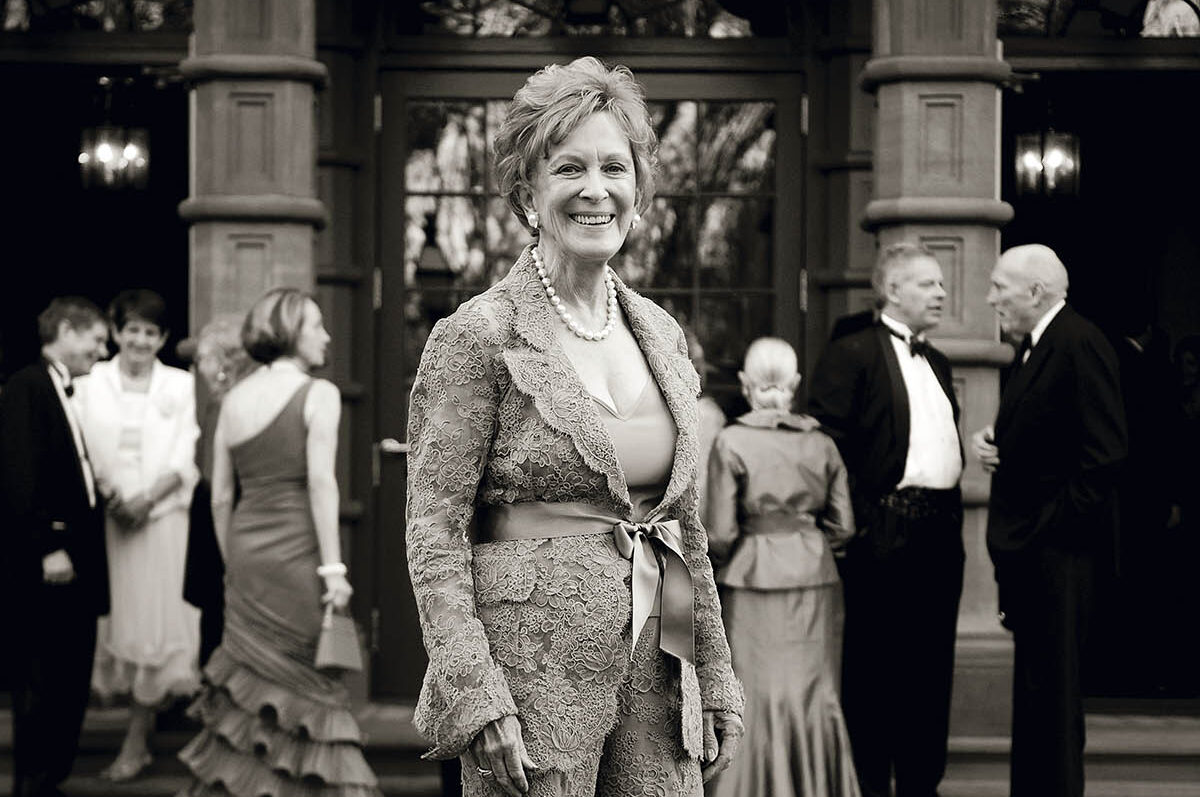
24. The Benefactor: Martha Rivers Ingram
Martha Rivers Ingram has always had a refined ear. Back in the mid-1950s, the Vassar grad initiated classical music programming on WCSC, one of Charleston’s first FM stations (owned by her father). And now, more than half a century later, music lovers enjoy much improved acoustics in the Gaillard Center, thanks largely to Ingram’s generosity and vision. The Charleston native’s philanthropic and civic leadership locally mirrors her contributions in Nashville, where she was CEO of Ingram Industries and led the charge (and funding) for not only saving the Nashville Symphony from bankruptcy but housing it in the grand Schermerhorn Symphony Center. In addition to her support of the Gaillard Center and its foundation, Ingram, named one of Business Week’s “50 Most Generous Philanthropists” in 2010, has championed the arts as chair of Spoleto’s board and contributed significantly to the College of Charleston.
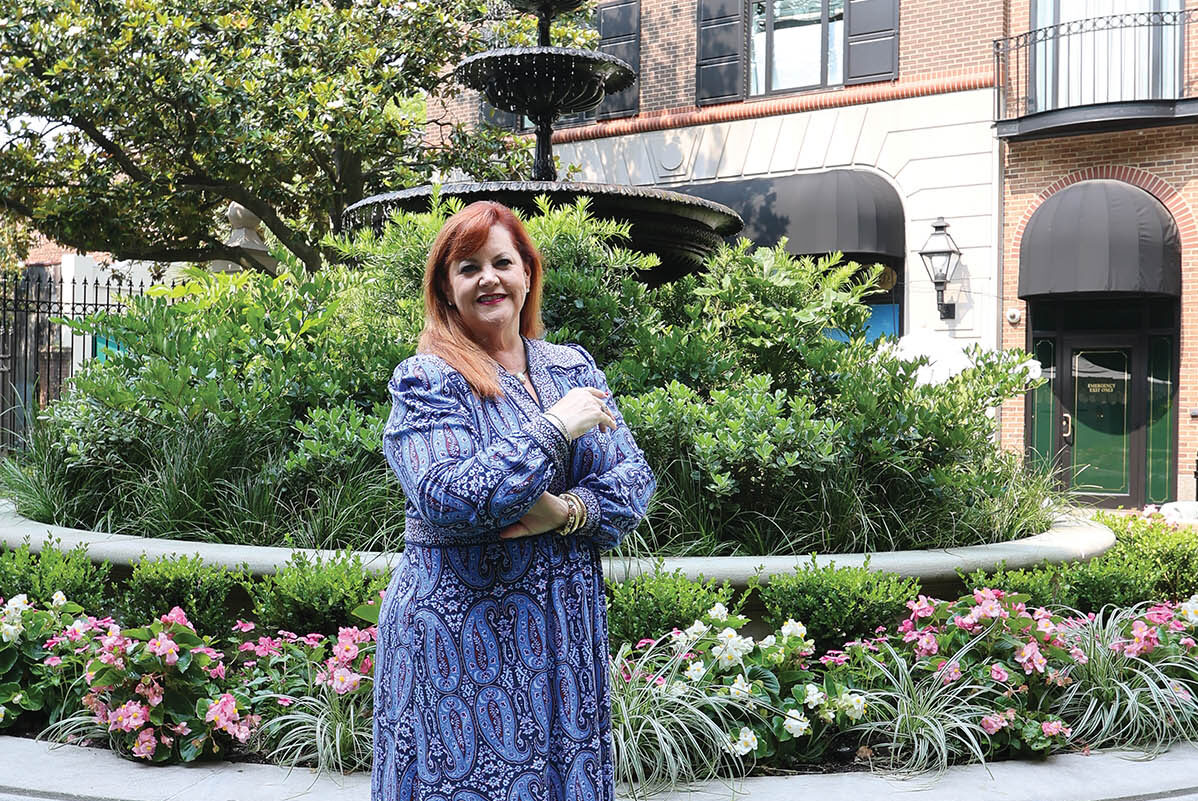
25. The Hostess: Helen Hill
Hurricane Hugo packed a wallop in 1989, but Helen Hill made landfall as the director of the Charleston Convention and Visitors Bureau just a couple of weeks prior and her wind speed has yet to slow. With a Category 5 smile and perpetually sunny graciousness, she’s Southern hospitality incarnate, and a tourism marketing genius, catapulting her hometown to repeated top spots on global and national rankings. As chair of the Charleston Regional Aviation Authority board, she’s behind growth that includes recruiting six new airlines and more than 65 daily direct flights, and her national profile as an industry leader is growing as well, with her appointment to the US Travel Association board. Nearly eight million visitors a year heed Explore Charleston’s call, and Hill is right there with a big, warm, “Welcome, y’all.”
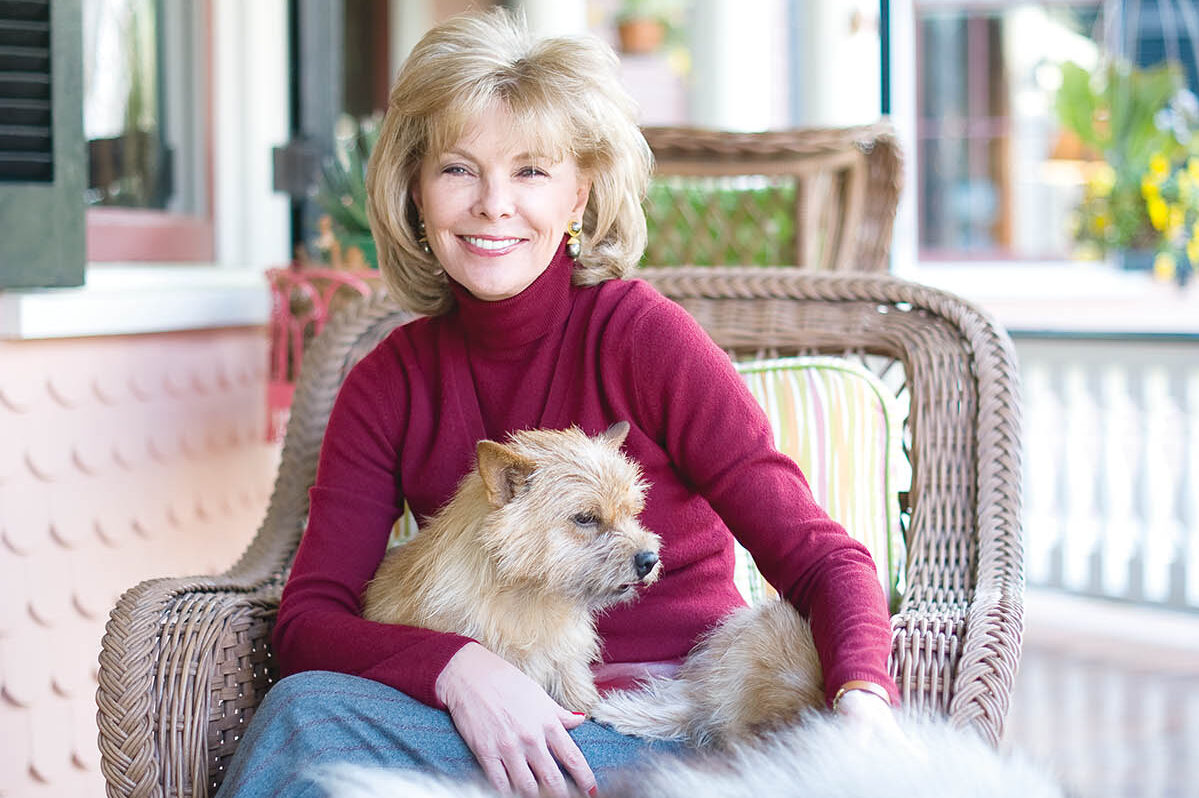
26. The Parks Ranger: Darla Moore
When Darla Moore sees room for improvement, she gets busy. The billionaire businesswoman has pumped mega bucks into higher education (The USC School of Business bears her name) and in various efforts to revitalize her hometown of Lake City (including ArtFields). Locally, her main influence has been in establishing the Charleston Parks Conservancy and chairing its board for 13 years. When she bought a home here in 2002, Moore’s late husband noted that the city’s pocket parks were shabby in contrast to the built environment. “Why don’t you do something about that,” he suggested. Since its founding in 2007, the Parks Conservancy has made improvements in many of the city’s parks and green spaces, with a major revitalization of Colonial Lake being revealed this month (see page 131).
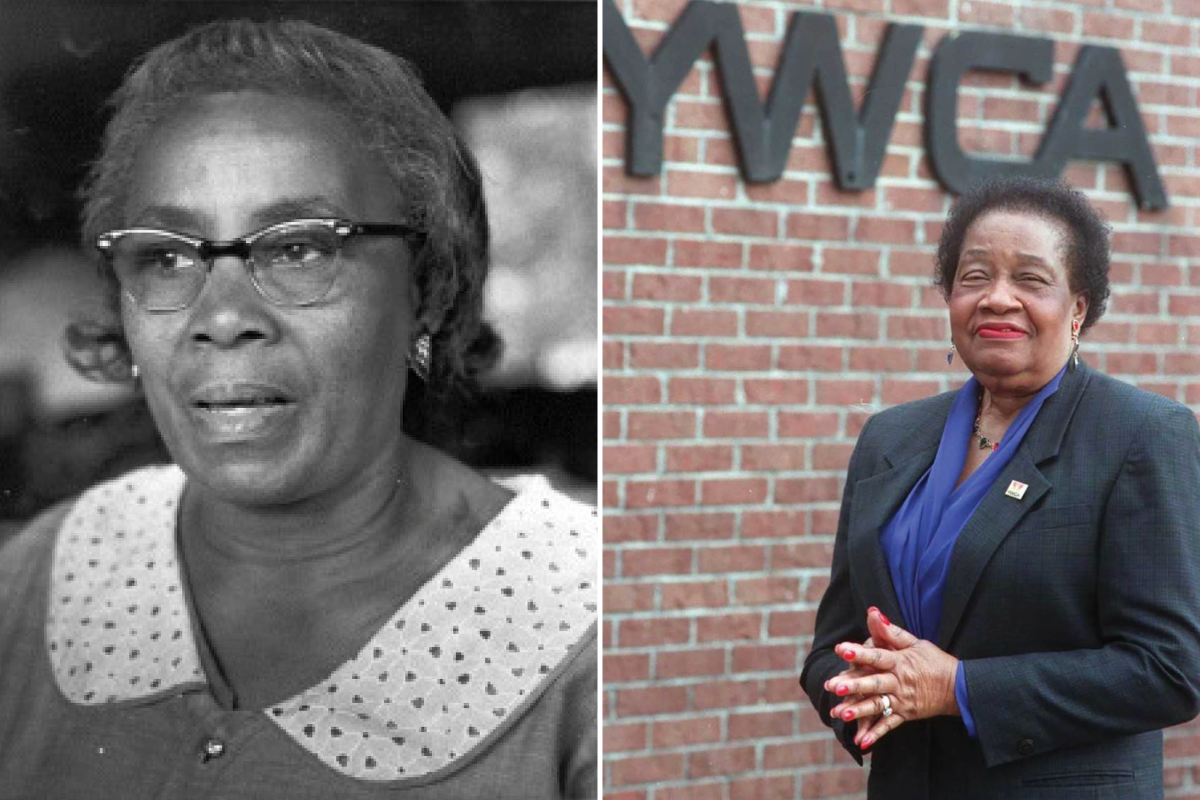
27. The Trailblazers: Septima P. Clark (1898–1987) & Christine O. Jackson
As the first issue of Charleston magazine was hitting the press in 1975, Septima Clark, aka the “Mother of the Civil Rights movement,” became the first Black woman elected to the Charleston County School Board. This followed Clark’s esteemed career as an educator, teaching at Charleston’s Avery Normal Institute and at schools in Columbia and fighting for Black voting rights and equality. Known for the leadership schools and citizenship workshops (Rosa Parks enrolled) that she led across the South, Clark was nationally prominent and remained locally active, ultimately serving two terms on the school board. She also worked with the Charleston YWCA, one of the city’s few integrated organizations, thanks to her friend and fellow trailblazer, Christine O. Jackson. A first cousin of Coretta Scott King, Jackson served as the YWCA’s executive director from 1966 to 2003. Like Clark, she broke racial and gender barriers, challenging discrimination with towering authority and feminine fortitude. “You simply watched her; you saw how she commanded people’s attention,” WCBD-anchor Carolyn Murray told The Post & Courier. Jackson, now 96, founded the Charleston MLK Celebration in 1972, the state’s largest annual celebration, still going strong.
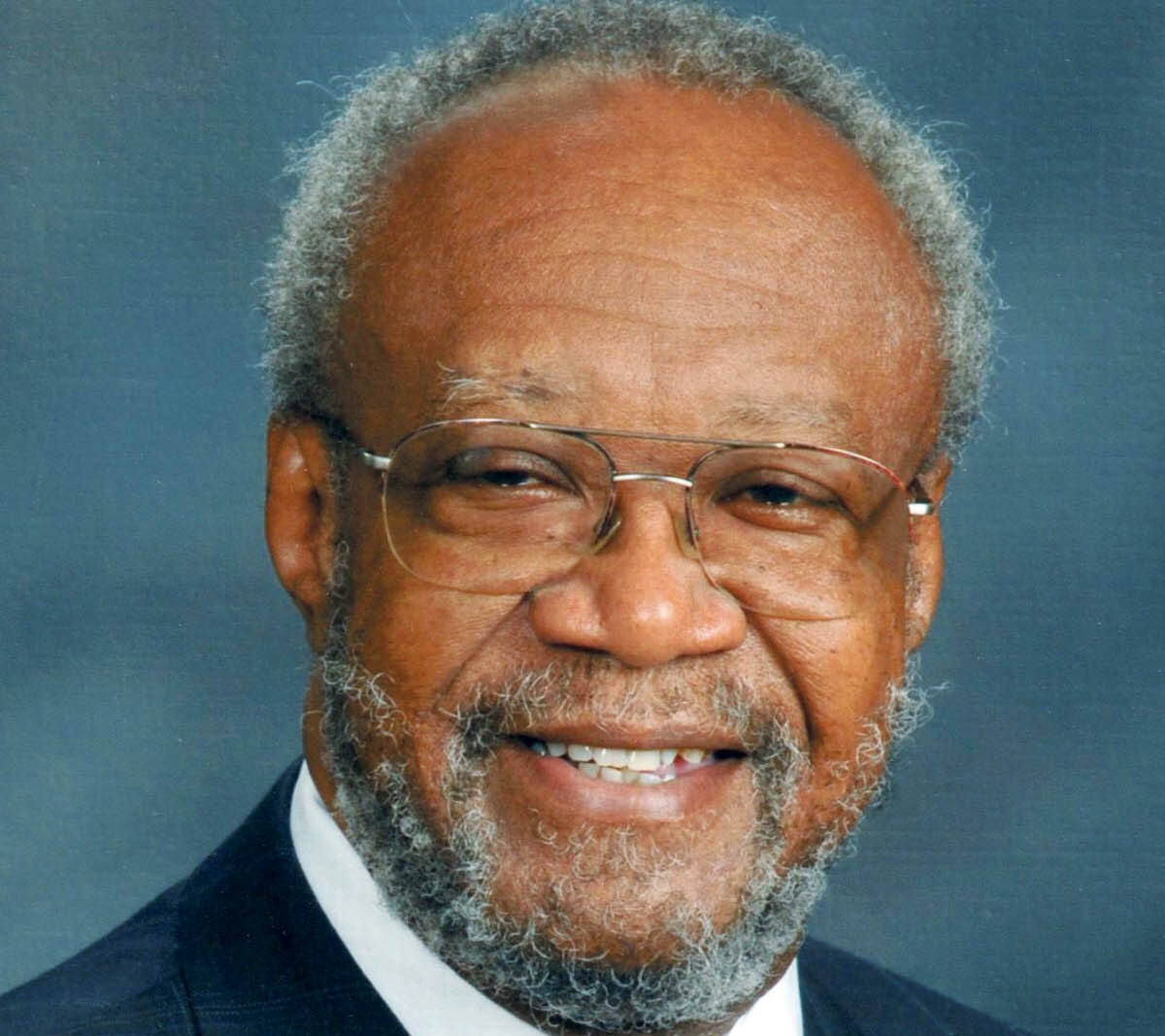
28. The Other Joe: The Reverend Joseph A. Darby (1951–2025)
His pulpit was frequently the op-ed page, his message the gospel truth: racial injustice remains alive and well in Charleston. Joe Darby spoke with a weighty baritone that made you listen, even if what he said was hard to hear. As former senior pastor of Morris Brown AME for 15 years and presiding elder of 33 AME churches in the Beaufort district, he was the utterly respected, ever-outspoken spokesperson for racial issues, whether leading the charge for removing the Confederate flag from the Statehouse or educational equity at Burke High School or SC State University. While Mayor Joe initially campaigned on improving race relations, Reverend Joe carried the campaign onward. His leadership with the NAACP (both the local chapter and statewide), Charleston Area Justice Ministry, and SC Civil Liberties Union kept civil rights issues front and center in the broader community.
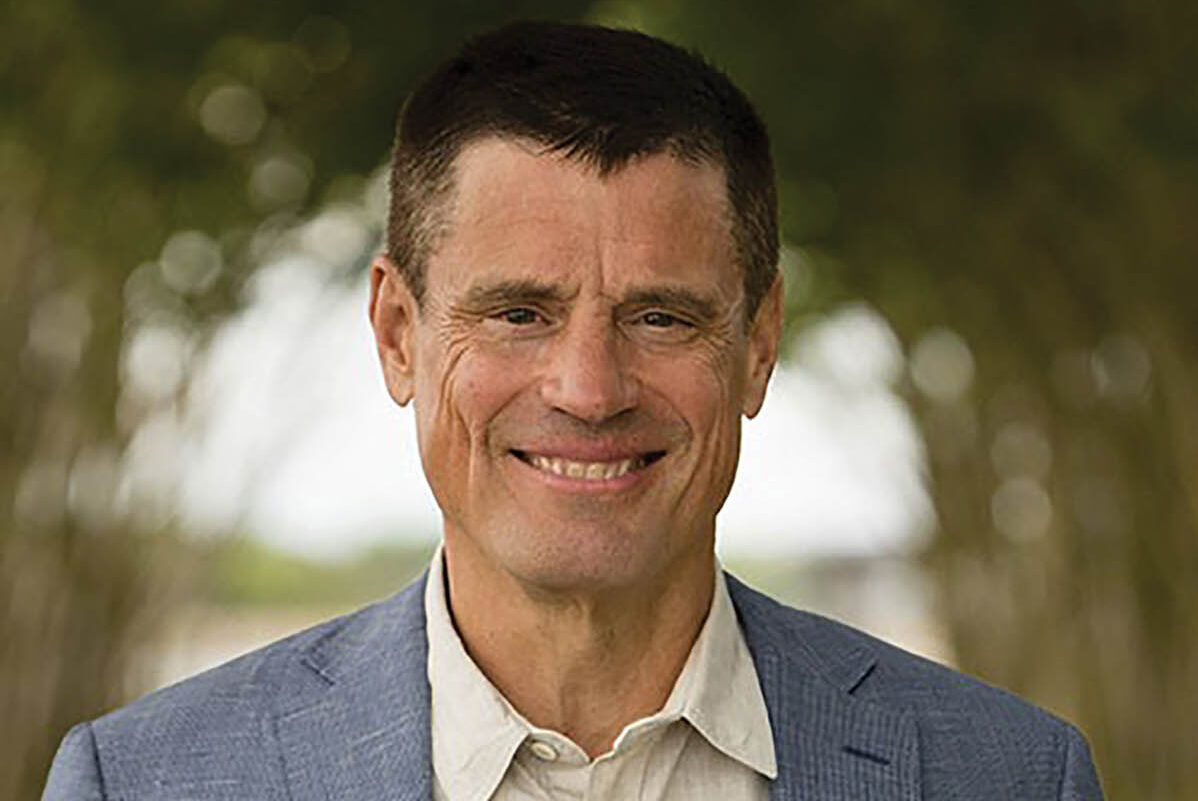
29. The Intentionalist: Ben Navarro
We could give the standard business bio—former Citigroup vice president, founder and CEO of Sherman Financial Group, and a significant minority owner of Credit One Bank—but that doesn’t begin to hint at the expanding impact that Ben Navarro and his Beemok Hospitality Collection (BHC)—The Charleston Place, The Cooper, The Riviera, and Sorelle restaurant—are having on the Lowcountry and the rest of the state. There’s the Credit One Tennis Tournament, stadium, and concert series that he’s majorly upgraded; the forthcoming American Gardens on Meeting Street that will be a publicly accessible green space (see page 134); and the many education endeavors (Meeting Street Schools, the statewide Meeting Street Scholarship Fund, Excellence in Teaching Awards) and wellness initiatives (the Modern Minds mental wellness clinic in partnership with MUSC and the course he teaches on “Intentionality” at CofC). And then, there’s Navarro’s pending purchase and forthcoming revitalization of Union Pier, arguably the most consequential development in the city’s history. Sure, these are deep pockets, but there’s also deep investment in the community. How Union Pier unfolds is to be determined, and we’ll all be watching, but the momentum, and intentionality, seem to be there.
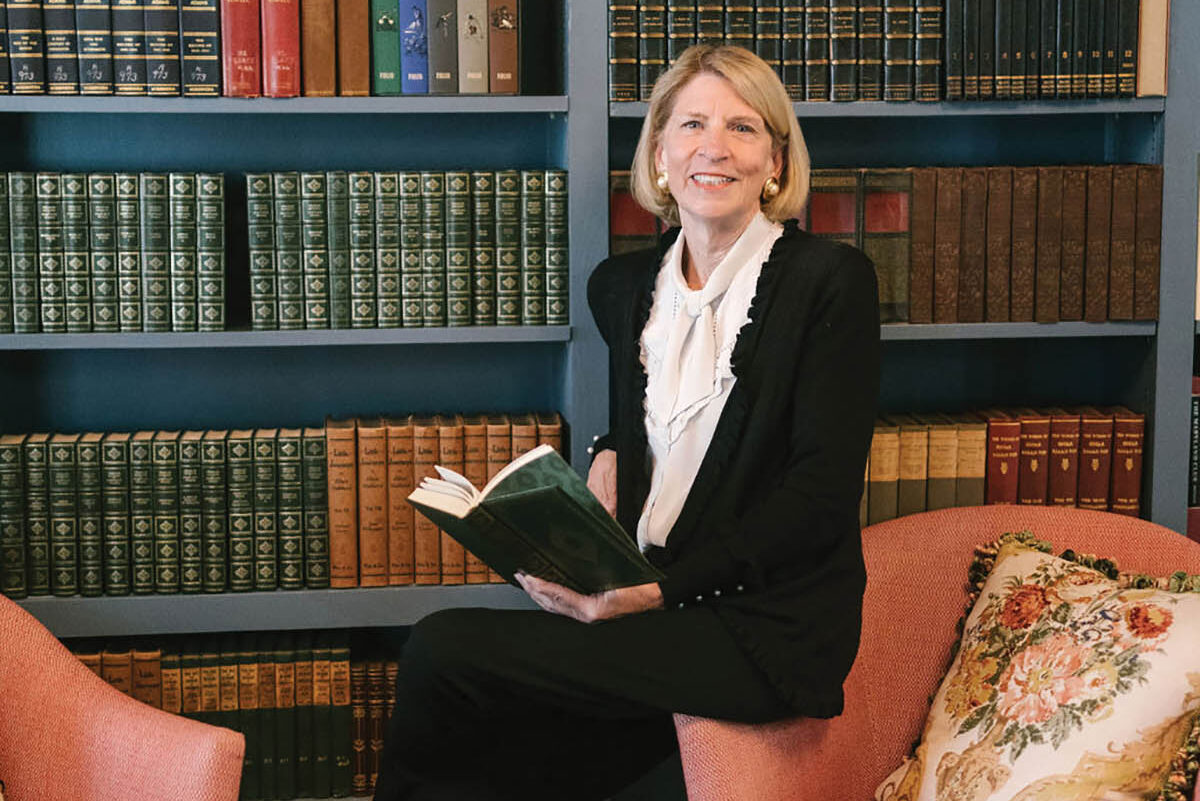
30. The Librarian: Anne Cleveland
Giving a musty old institution an enticing, fresh gleam sounds more like a job for Betsy Berry, Angie Hranosky, or any of Charleston’s celebrated interior designers, not a bluestocking, retired school teacher. But never underestimate Anne Cleveland. During her run as Charleston Library Society’s executive director from 2009 to 2023, she transformed what seemed, to outsiders at least, like a South of Broad secret society (think Yacht Club with manuscripts) into a hip, popular hangout. “I swung the doors wide open and let everyone in,” she says. “I wanted it to be Charleston’s living room.” Cleveland grew membership from 450 to more than 3,000, offered 200-plus events a year (lectures, book signings, films, and concerts), and raised $6 million to restore the iconic Beaux-Arts building. Today, under the leadership of Laura Pelzer, the nation’s oldest cultural institution continues to be one its most inviting and engaging.
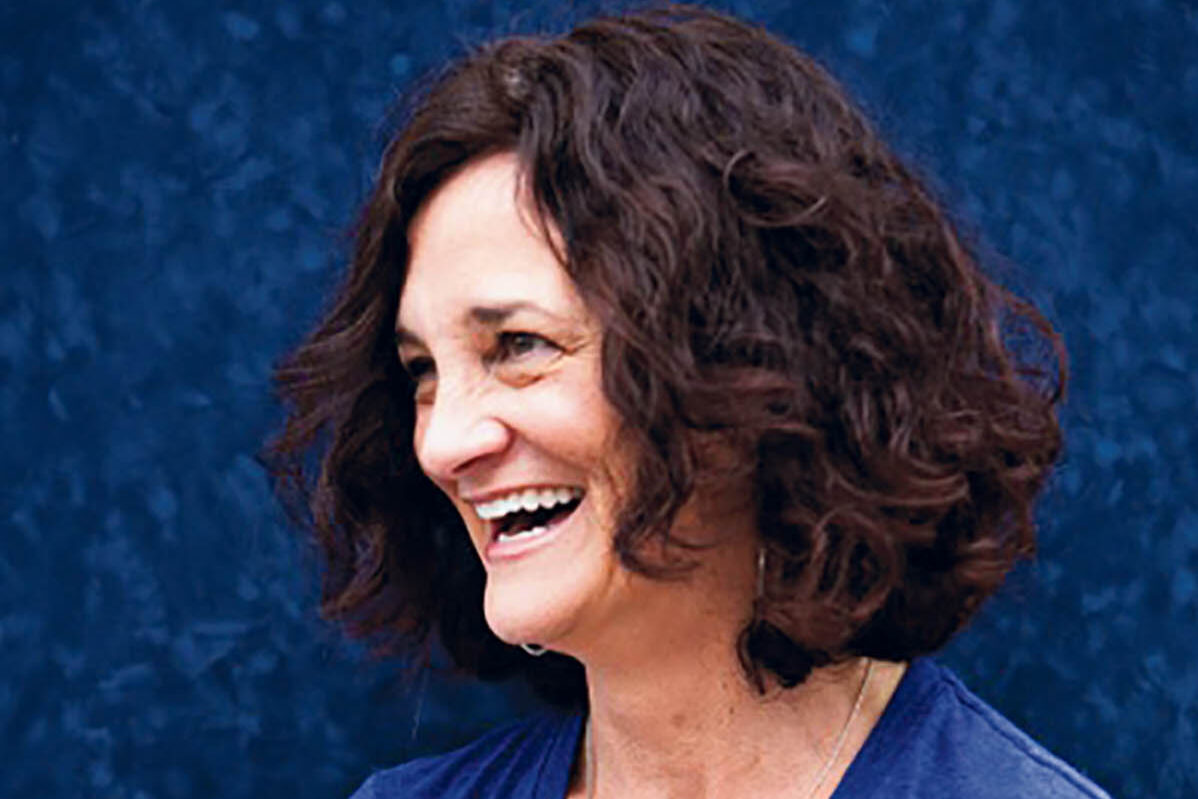
31. The Local: Jamee Haley
Just try taking on Dick’s Sporting Goods, Walmart, or any of the national superstores that are cashing in on Charleston’s rising tide. It ain’t easy, but fortunately, Jamee Haley isn’t easily intimidated. As cofounder and executive director of Lowcountry Local First (LLF) for the nonprofit’s first 14 years, Haley amplified the power of local dollars to bolster independent, locally owned businesses. The organization champions the big impact of the little guys (and gals) and puts the roots in grassroots support, literally, with LLF’s Sustainable Agriculture Initiative, home to the state’s first incubator farm. Now under the direction of Jacquie Berger, LLF continues to promote, protect, and expand the uniqueness of local flavor, and thank goodness, as more and more national brands and franchises seek a foothold in Charleston’s enviable market.

32. The Entrepreneur: Steve Swanson
Back before there was PeopleMatter, BoomTown, or Blue Acorn, back before the Digital Corridor or DIG South heightened awareness of Charleston’s Silicon Harbor, Steve Swanson was, in tech speak, an early adopter, a disruptor. As a College of Charleston undergrad, he helped launch Automated Trading Desk from his garage, eventually growing it to a 115 employee hub on a sleek campus in Mount Pleasant, before selling to Citigroup in 2007 for $680 million—one of the largest business transactions in Charleston’s history. He’s since donated a chunk of that to his alma mater, where he has established numerous scholarships and cochaired the College’s Boundless Campaign, ensuring the school has the resources to educate tomorrow’s innovators and entrepreneurs.
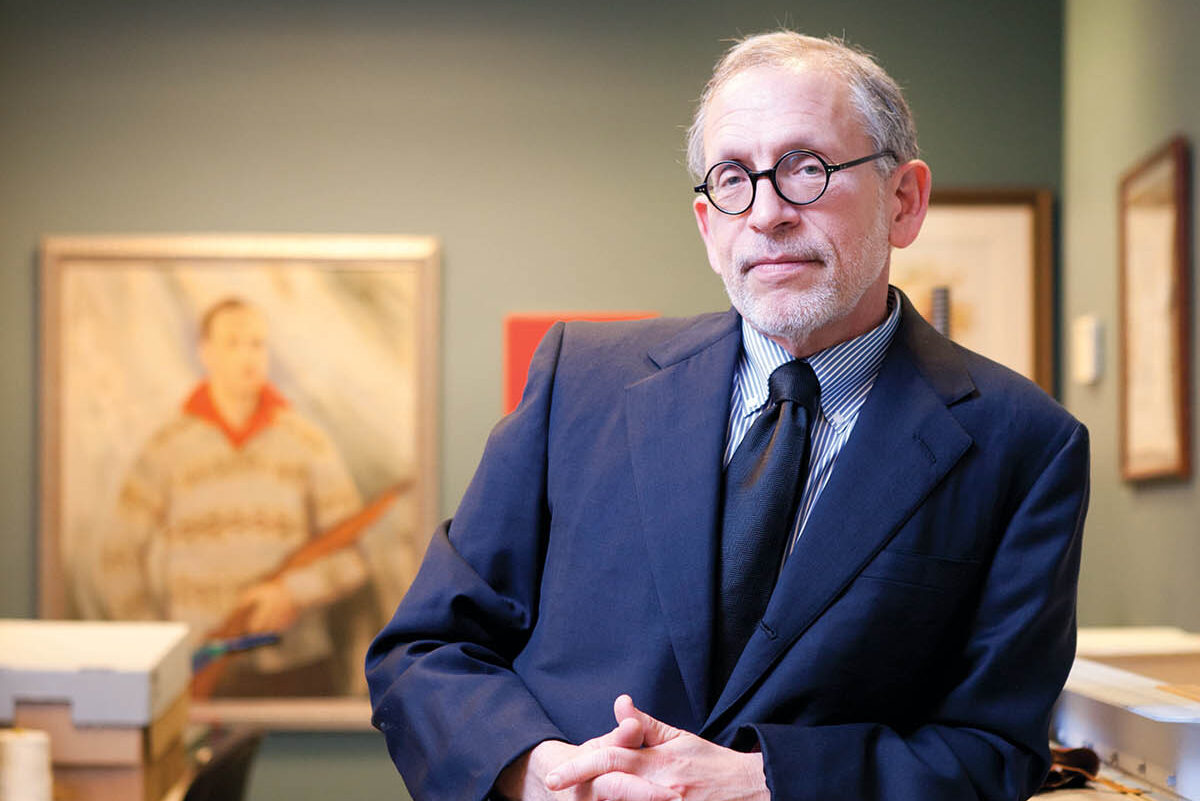
33. The Storyteller: Harlan Greene
None other than New York Times best-selling icon Armistead Maupin blurbed The Real Rainbow Row, Harlan Greene’s latest book. That alone hints at Greene’s revered stature in literary circles, but it doesn’t quite capture how beloved, reliable, and important the Charleston native has been as an archivist, historian, and storyteller. With his signature Sigmund Freud glasses and trim beard, the Lambda Literary Award-winning novelist looks the part of the well-read raconteur, which he is, but he’s also the go-to for anyone digging in Charleston’s deep and often dark past (he’s this magazine’s contributing history editor for that reason). He’s been an integral staffer at the SC Historical Society, the North Carolina Preservation Consortium, the Avery Research Center for African American History and Culture, and CofC’s Addlestone Library, but his most proud legacy may be his work as director of the South Carolina LGBTQ Oral History, Archives, and Outreach Project at the College, funded by the Donnelley Foundation (see #35) and Linda Ketner (see #18). “I saw that virtually no other institution in our state was documenting the LGBTQ experience and presence, historically or in the modern era,” Greene said in a CofC news story. “It prompted me to go full steam ahead to try to catch information before it disappeared.”
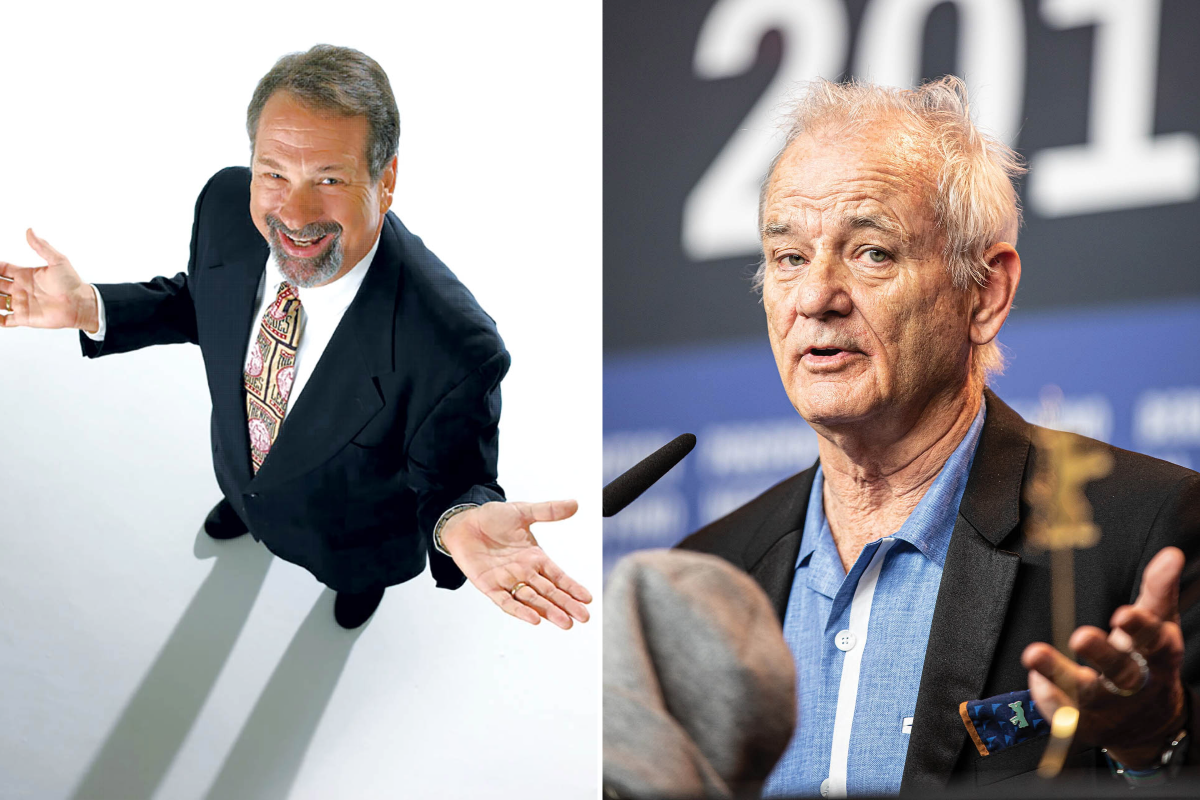
34. The Game Boys: Mike Veeck, Bill Murray, & Tony Bakker
Fireworks cascade over the Ashley River on most summer Friday evenings—’cause it’s baseball season, and if the RiverDogs are home, it’s time to celebrate. And there’s much cause for celebration. With Bill Murray and the Goldklang Group’s financial backing and Mike Veeck’s inanely savvy promotional ploys and “Fun is Good” philosophy, minor league baseball has become a major league player in Charleston. The Joe opened in 1997 and is also a home-run venue, used for numerous community events in the offseason. But the Riverdogs aren’t the only game in town: in 1993, British soccer fan and Blackbaud founder Tony Bakker established the Charleston Battery and soon built one of the USL’s first soccer-specific stadiums at Blackbaud. Now home field is Patriot’s Point, and the Battery, like the Riverdogs, give local sports fans plenty to cheer about.
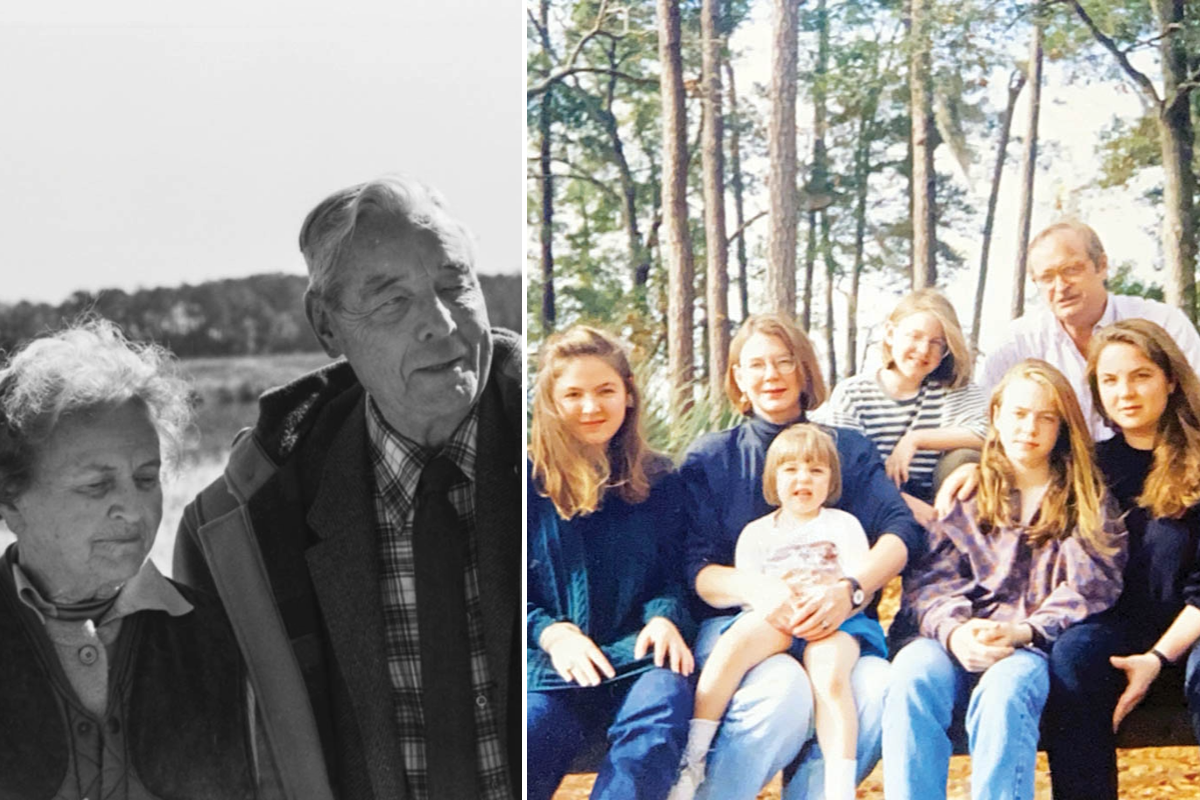
35. The Legacy Leavers: The Donnelleys
Quantifying Gaylord and Dorothy Donnelley’s impact on the Lowcountry is nearly impossible, in part because it’s ongoing and because it’s simply so vast. Do you appreciate nature and the outdoors? Ever gone to an arts performance—a play, dance, concert, or one of the region’s festivals? Maybe you’ve visited an area museum, or driven south and simply savored the beauty of the ACE Basin and the 8,000-acre Donnelley Wildlife Area. If so, thank the Donnelley family. Since the inception of the Gaylord & Dorothy Donnelley Foundation in 1952, wealth from the family’s Chicago-based publishing and printing business (established in 1864, once the publishers of Time and Life magazines) has been invested broadly and generously across the Lowcountry, supporting numerous conservation and arts-related organizations. “We value arts organizations across all disciplines, traditions, and communities, as they spark new ideas, bring forward voices, and challenge the way we see ourselves and think about the world,” the Foundation website states. Ask any local arts or conservation nonprofit leader, and they’ll say the feeling is mutual.
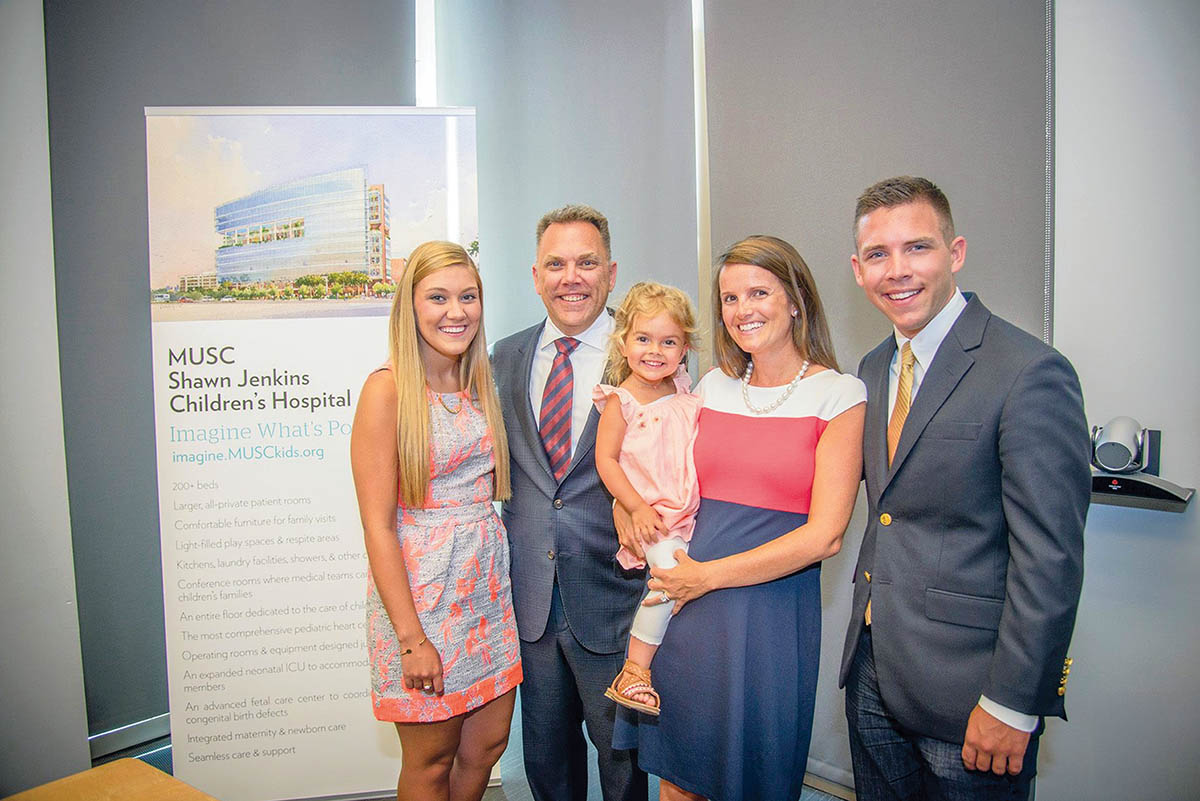
36. The Dreamer: Shawn Jenkins
As a kid, Shawn Jenkins worried that his mom wouldn’t earn enough to keep the family fed. Today, he’s traded worries for dreams, and he dreams most often of alleviating other people’s worries and improving their health and wellness. As cofounder and CEO of Benefitfocus, he created an innovative cloud-based solution to revolutionize and streamline the employer/insurance benefits world, so more people can worry less about their coverage. And his whopping $25 million gift to help MUSC realize its dream of building a new, enhanced children’s hospital means parents of sick kids hopefully sleep better at night knowing their child is getting the best care possible.
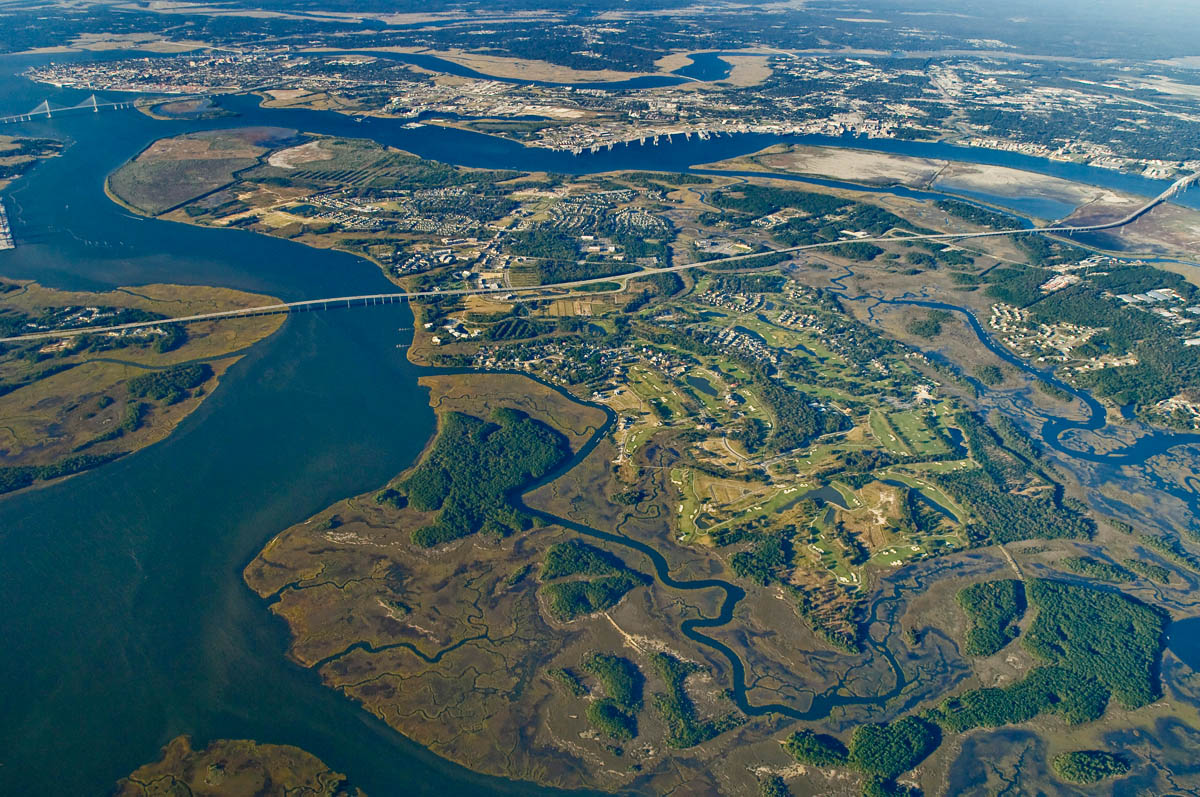
37. The Islanders: The Guggenheim Foundation, City of Charleston, & Daniel Island Company
The legendary blacksmith Philip Simmons used to reminisce about boating to school from Daniel Island, where he grew up in the early 1920s, to Buist Academy on the peninsula. Little could he imagine that he’d live to see his remote fishing and farm village become its own city within a city that’s home to both public and private schools, an array of corporations and businesses, a professional tennis stadium, golf courses, and 15,000 well-heeled residents. In the 1980s, the Guggenheim Foundation, which owned the 4,000-plus-acre island, began envisioning a planned community. In 1991, the City of Charleston annexed the island, and in 1997, local developers Frank Brumley and Matt Sloan, from the original planning team, created Daniel Island Company, which purchased the land and began fulfilling the vision for “Charleston’s island town.” The winner of the Urban Land Institute’s 2007 Award for Excellence, Daniel Island has expanded not only Charleston’s footprint and tax base, but the vision for sustainability and quality of life.
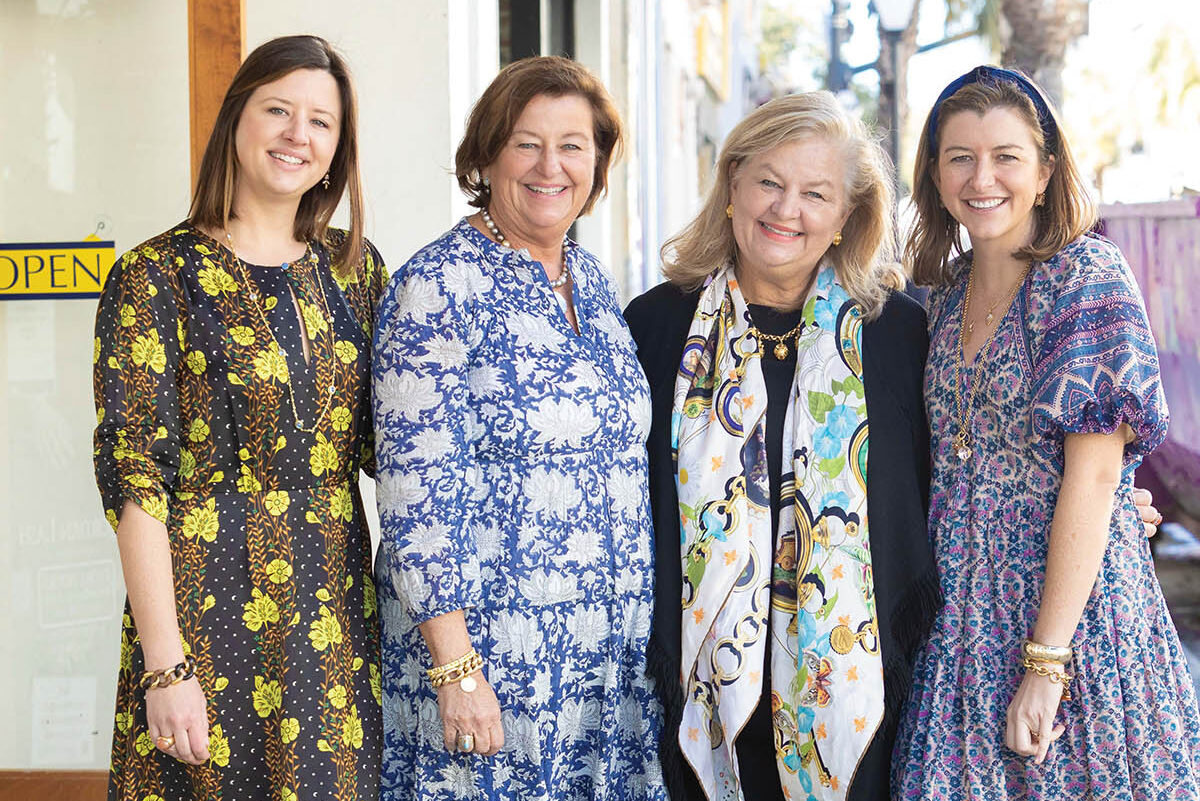
38. The Gems: Croghan’s Jewel Box
If anyone’s thinking about buying the magazine a 50th anniversary gift, we know where we hope you’ll shop. As Charleston’s oldest jewelry store and a family-owned and operated King Street mainstay for more than 100 years, Croghan’s sets the (gold) bar high when it comes to serving the community and giving back. For generations, Croghan’s has been the go-to for bespoke service, dazzling gemstones, and keepsake gifts, but even if a new bauble isn’t in your budget, it’s where you can go for a friendly hello and a touchstone of classic Charleston gentility. That, too, is a rare jewel. This year, they’ve moved to a shiny, larger storefront on lower King Street, making sure every bit of authentic personality and sparkle moved along with them. The business savvy of sisters Mariana Ramsay Hay and Rhett Ramsay Outten and now their kids proves that local mom-and-pop (and mom-and-daughter) shops can have a large and lasting impact.
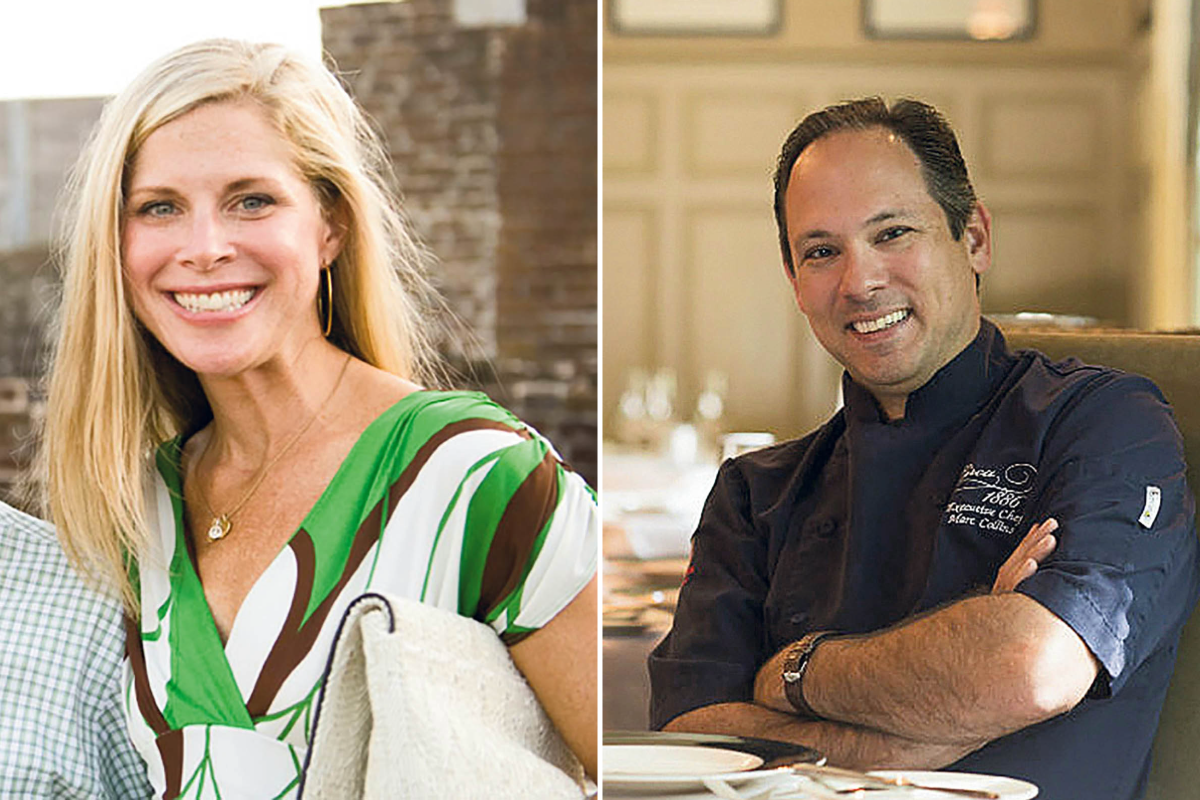
39. The Tastemakers: Angel Passailaigue Holmes & Marc Collins
In 2004, PR guru Angel Postell and Circa 1886 chef Marc Collins started cooking up a little idea: why not showcase Charleston’s culinary scene with, say, a festival? Two years later, with help from culinary cognoscenti like the late Nathalie Dupree, they launched the inaugural Charleston Food & Wine festival, now known as Charleston Wine + Food, perhaps better known as the $32 million economic impact feast (in 2024 numbers). Today, the festival continues to please palates and showcase local and national talent, and its sweet aftertaste lingers in the ongoing national press and James Beard accolades that Charleston’s chefs and restaurants continue to receive.
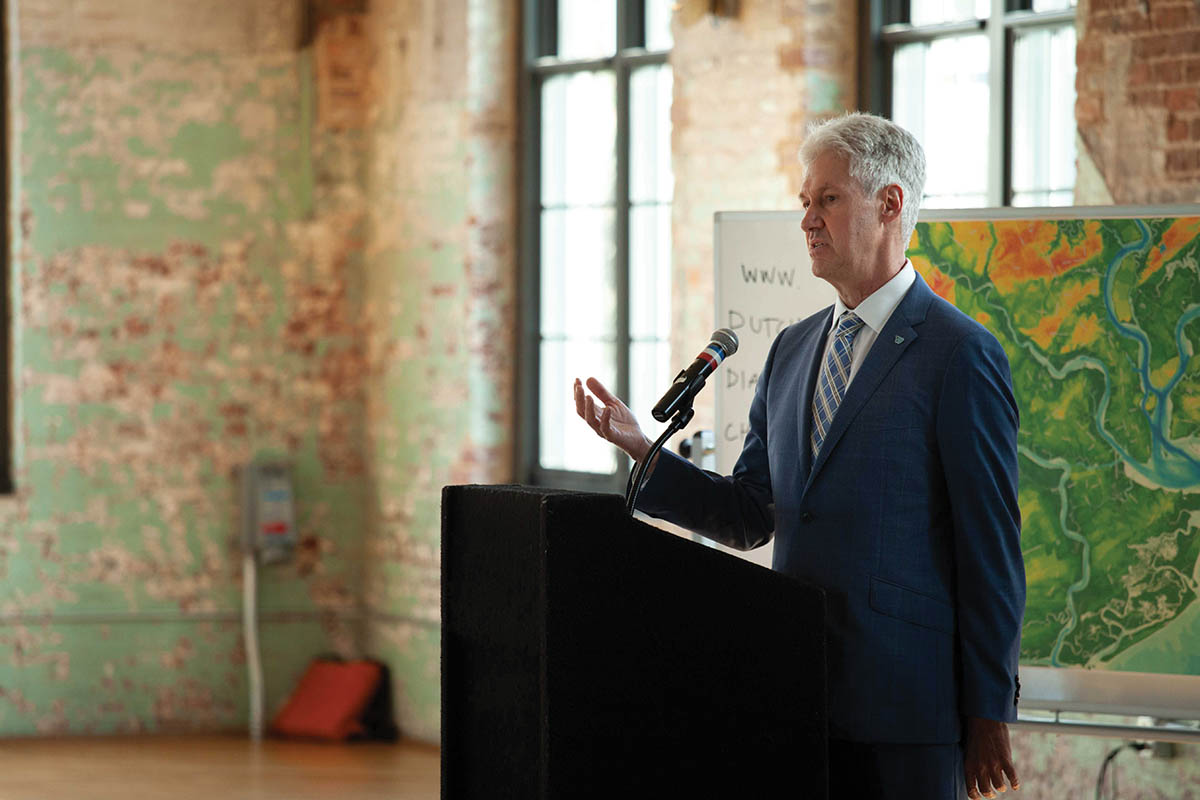
40. The Sea-level Sage: Dale Morris (1960–2025)
Water may follow the path of least resistance, but water expert Dale Morris never did. Rather, he understood resistance—that of communities seeking quick fixes—and helped us navigate through it. In 2018, then-Mayor John Tecklenburg invited Morris, alongside the Dutch ambassador, to Charleston to share how the Netherlands had addressed similarly complex challenges of flooding and sea-level rise. Thus began the Dutch Dialogues. Morris’s expertise regarding all things water was immediately apparent, leading to his appointment as the city’s chief resilience officer. Morris masterminded the Charleston Water Plan to proactively address flooding and sea-level rise. In public forums, he was unequivocal in stating that sea-level rise was an existential threat to Charleston, but listening to him also made you feel optimistic. He was so smart and well-spoken that you thought he alone, like a savvy Aquaman, might save us. After departing his city post last year, Morris remained in Charleston where he tragically died after a bicycling accident this spring.
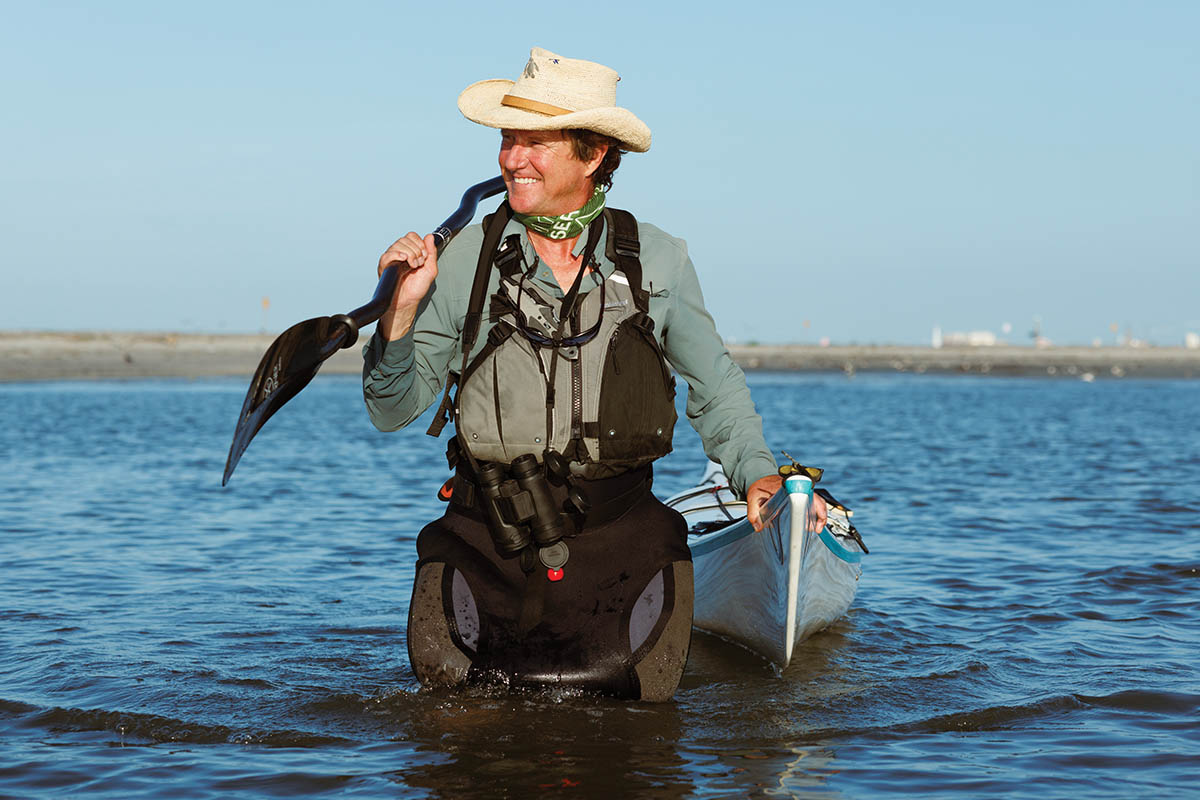
41. The Natural: Chris Crolley
Influence can happen quietly. It might come in the hush of the cypress forest, as Chris Crolley points out a bird call. It might come paddling the serene black water swamps of the Francis Marion, where the veteran guide revels in explaining intricate ecosystems and catching glimpses of the elusive Prothonotary warbler. Starting Coastal Expeditions in 1992 with a handful of kayaks, Crolley’s business now extends from Beaufort to Cape Romain, offering kayak tours, boat trips, and anything else he can think of “to make the outdoors feel close, accessible, and unforgettable,” he says. “No child left dry” is the rallying cry of the company’s foundation, a nonprofit that took 10,500 area students on environmental outings in 2024 alone and helps fund sea turtle monitoring in Cape Romain, one of the most vital nesting grounds on the Eastern seaboard. Crolley is beyond passionate about the power of nature to transform us—fitting, as he himself is a force of nature.
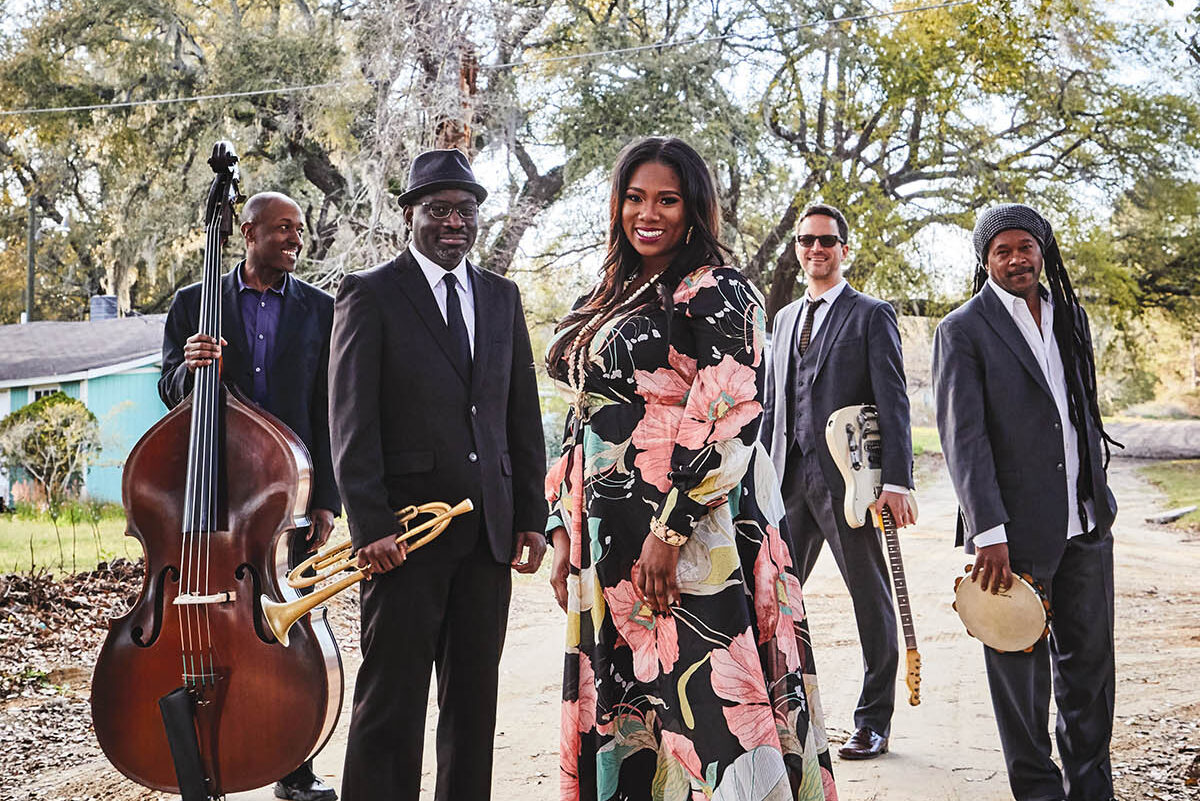
42. The Rhythm Keepers: Ranky Tanky
This list needs a rocking soundtrack, and thanks to Ranky Tanky, we’ve got it. Cue the hand-clapping, jubilant choruses of Gullah-meets-funky jazz. These two-time Grammy-winners have wowed audiences around the world with their soulful, get-up-and-dance versions of Sea Island spirituals and work songs. In doing so, they’re more than impressive performers, they’re Gullah ambassadors, giving the music they grew up with a fresh beat. “We’re celebrating a culture that hasn’t always had the opportunity to celebrate itself,” said drummer Quentin Baxter. When not on the road or making appearances on NPR or The Today Show, the age-old friends anchor Charleston’s music scene. Baxter, Charlton Singleton, and Kevin Hamilton have been key in the Charleston Jazz Orchestra, while Singleton serves as artist in residence emeritus at the Gaillard Center and director of the MOJA Festival. Baxter’s lengthy resume includes being professor of jazz percussion at CofC and serving on the boards of Charleston Symphony Orchestra and Engaging Creative Minds. Quiana Parler’s showstopping vocals headline numerous shows and charitable benefits, while guitarist Clay Ross has served as a US Jazz Ambassador and teaching artist with Lincoln Center and Carnegie Hall.
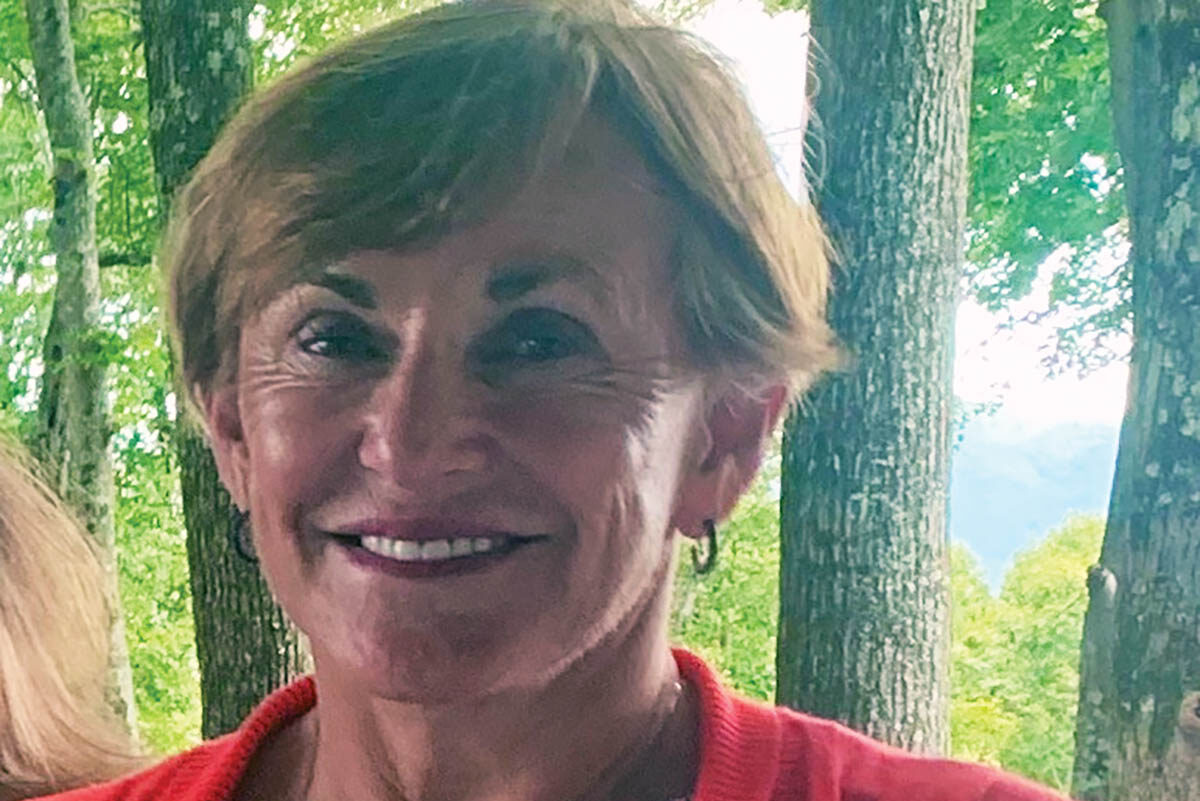
43. The Researcher: Kathleen Brady, MD
Medical research is that nerdy enterprise most of us don’t pay attention to, until we need it. Given that nearly 17 percent of Americans over age 12 faced a substance abuse disorder in the last year, chances are you’ll need it. Enter Dr. Kathleen Brady, vice president for research and distinguished university professor at MUSC, where for more than three decades she’s led the charge for evidence-based treatments, studying how anxiety, affective disorders, and PTSD affect addiction, particularly in women. Brady has been the top NIH-funded investigator at MUSC and in the top five percent nationally for over a decade, receiving the SC Governor’s Award for Excellence in Science for her contributions, including ensuring clinical trial discoveries reach frontline providers. “I’m committed to science and research, but my interest lies in how these improve the lives of patients,” the Betty Ford Award recipient said. That bridge proved vital when the opioid crisis hit South Carolina. Brady’s work has expanded treatment capacity, including telehealth, screening, and ER intervention for opioid addiction throughout the state, saving countless lives.
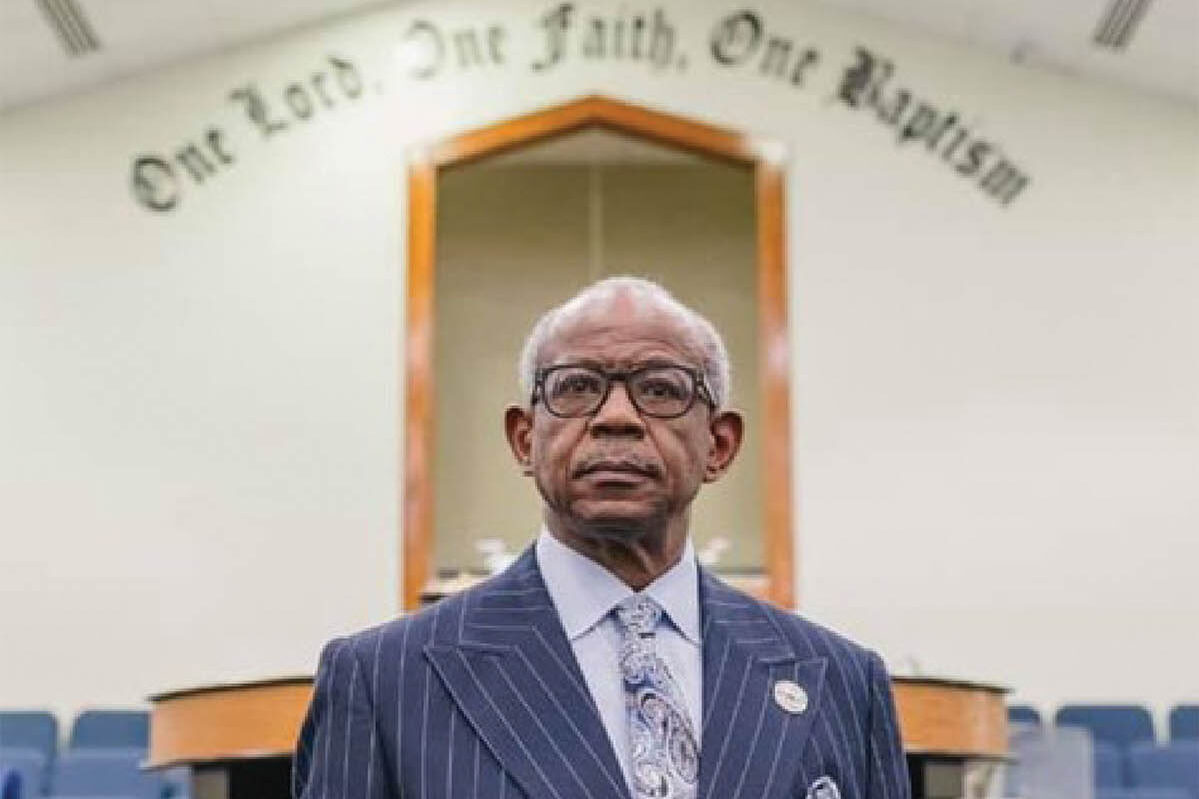
44. The Justice Seeker: The Reverend Nelson B. Rivers
In January 2000 when some 50,000 people marched on the SC Capitol to demand removal of the Confederate Battle Flag, the Rev. Nelson Rivers was at the fore. The Lowcountry native and warrior for racial equality and social justice has never wavered. For nearly four decades, he’s served at every level of the NAACP, helping increase the number of Black people elected to public office, and was instrumental in establishing the Charleston Area Justice Ministry in 2011. The ecumenical consortium of some 45 congregations is one of the most diverse and effective forces for social justice the region has known, and Rev. River’s bold imprint is all over it. Unafraid to speak truth to power, in 2016 he publicly challenged then-Charleston Mayor John Tecklenburg to conduct a racial bias audit of the city’s police department. Rivers has served as vice president of the National Action Network, but stays locally rooted as senior pastor of North Charleston’s Charity Mission Baptist Church. “No one does it like Rev. Rivers—he’s a prophet, honestly,” says his colleague Rev. Jeremy Rutledge. “He brings such fire, grace, and humor to the struggle that you can’t help but want to join in.”
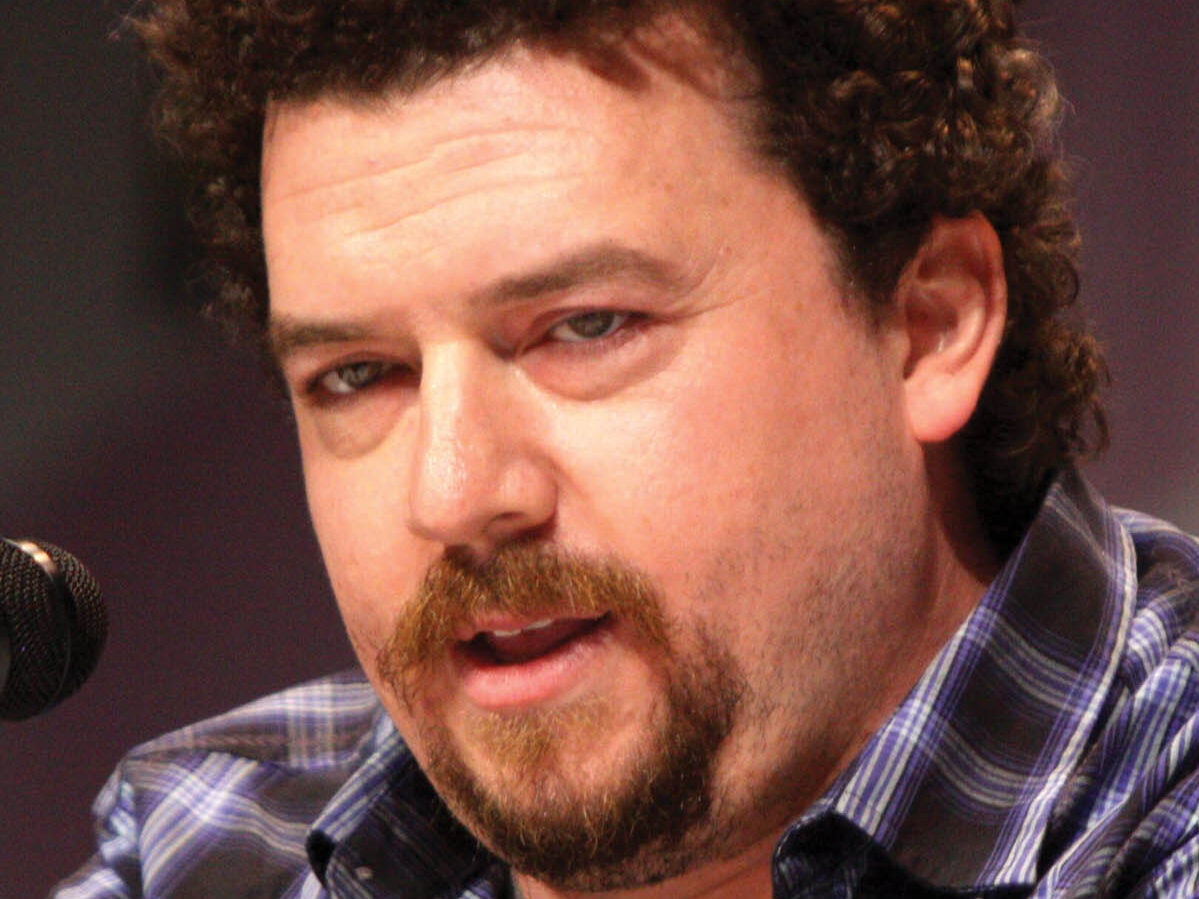
45. The Bright Lights: Danny McBride, The Pate Brothers, & BRAVO
Droves of fans, many of them young teens, cluster in the Old Village to catch a glimpse of their favorite Outer Banks actors. Eighteen wheelers line the street as camera crews haul lights and equipment into place. It’s a familiar scene across the Lowcountry, where filmmakers love our cobblestone streets, moody marshes, moss-draped trees, and apparently, our OBX-like landscape. Josh and Jonas Pate, currently filming their fifth season of the popular Netflix series, join Danny McBride (The Righteous Gemstones), and BRAVO’s Southern Charm crew in putting Charleston back on the film industry map after the robust run of movies filmed here in the early 2000s (The Patriot, The Notebook, Cold Mountain) dried up due to lack of incentives and strict film rules. The film industry’s deepening influence in the region is both economic—with $574 million spent by filmmakers in the area over the last decade—and social. Proof? Tell someone you just met that you’re from Charleston and chances are, the next question will be: “So, do you know Shep?”
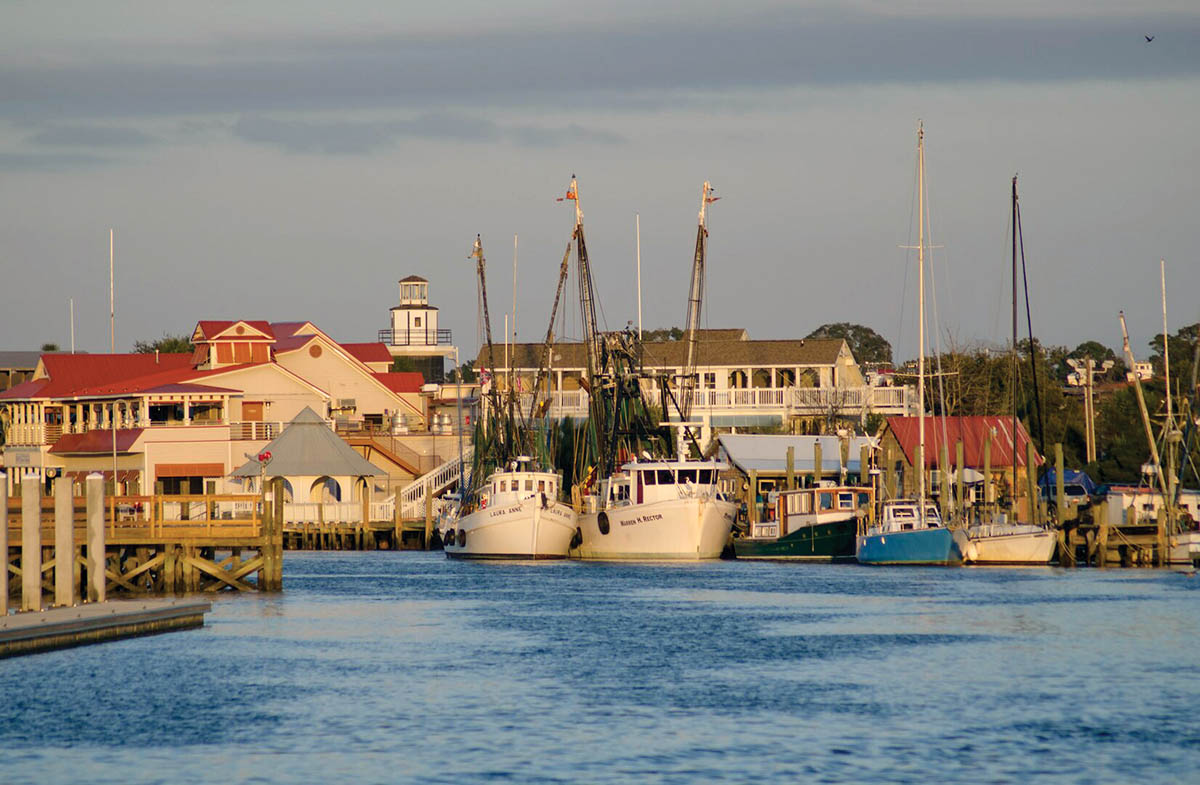
46. The Fishermen: Shrimpers & Mark & Kerry Marhefka
It’s a tough call: did Charleston’s built and natural landscapes make the city a marquee destination, or was it shrimp and grits? Regardless, the dish would have no grit if not for local watermen. Trawling for the tasty crustaceans and casting huge nets in South Carolina creeks and the deeper Atlantic has never been easy work, but local shrimpers have kept a culture and livelihood alive despite economic tides working against them, as the influx of cheap imported shrimp and high fuel costs has nearly decimated the wild-caught native shrimp industry. Similarly, much of today’s commercial fishing industry is based on maximizing profit, at the risk of depleting our fishery natural resources. Mark and Kerry Marhefka of Shem Creek’s Abundant Seafood are swimming against the current, ensuring fish are caught sustainably and sold directly to local restaurants and to their Community Supported Fishery (CSF) members as freshly as possible. A James Beard Leadership Award recipient, the Marhefkas’ boat-to-plate ecosystem is a winner with chefs, diners, and environmentalists alike.
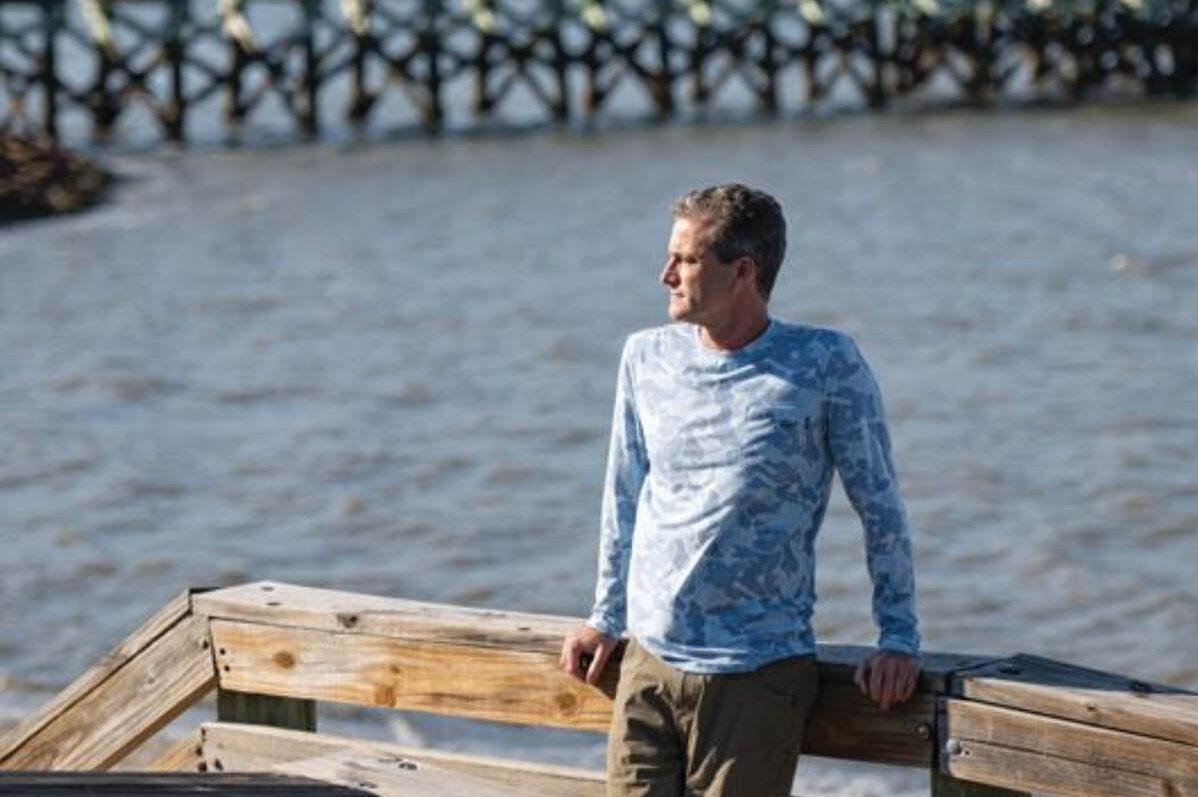
47. The Waterkeeper: Andrew Wunderley
Water, as they say, is life, and in Charleston, it is also livelihood. We are a region surrounded by the stuff, laced by creeks and waterways, encircled by marshes and wetlands, with an economy—from the ports to fishing and shrimping, to tourism and beachgoing, to surfing and sailing—saturated by our dependence on healthy waterways. That’s why Andrew Wunderly’s influence, as Charleston’s Waterkeeper, is vital. The small nonprofit monitors the health of our harbors, rivers and creeks, tracing toxic contamination to its source and holding polluters accountable, while ensuring federal and state regulations are enforced. A competitive swimmer, surfer, lawyer, and proven advocate, Wunderly’s resume is ready-made for his role—if a day “at the office” means boating around to test water quality, restore oyster reefs, or transplant spartina to restore lost habitat, well, that suits him just fine. Even better when he and colleagues win a big court case, like the 2021 $1.2 million settlement against nurdle (plastic pellet) polluters.
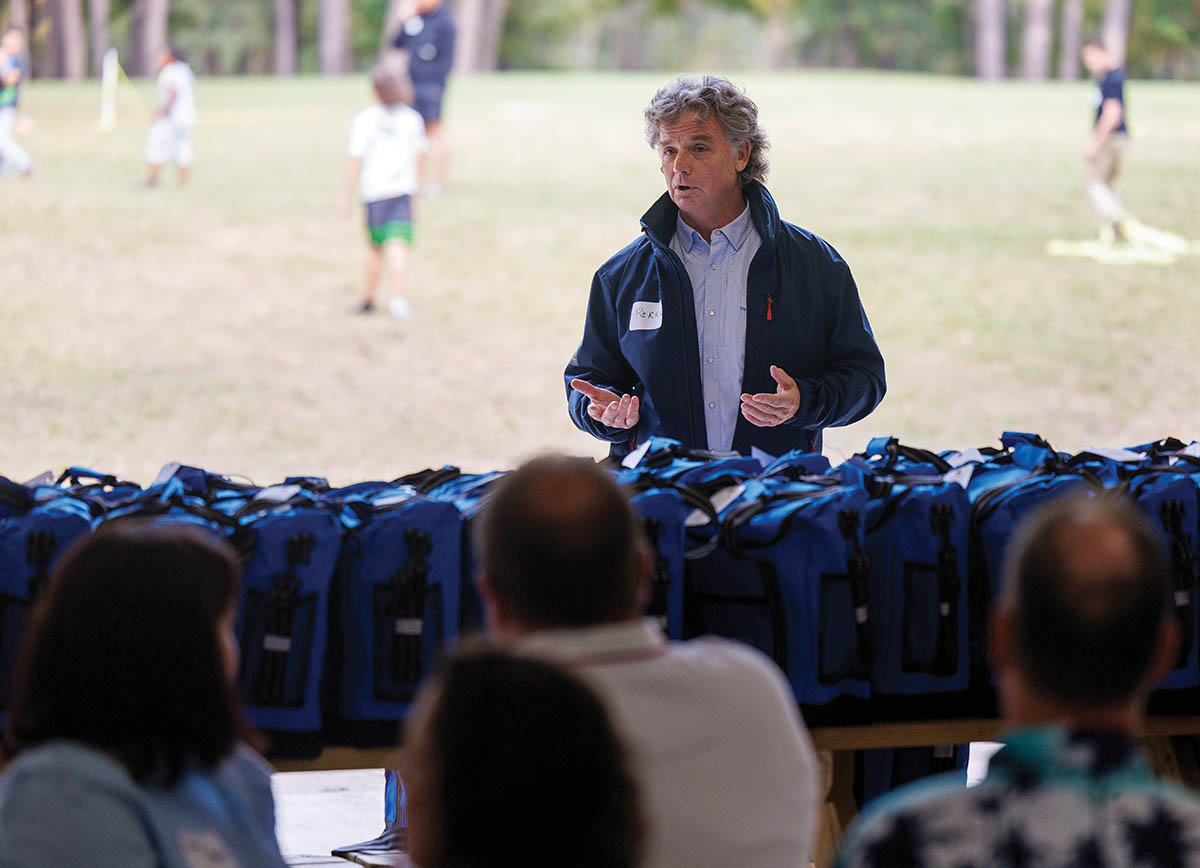
48. The Paper Boy: Pierre Manigault
While thousands of newspapers shuttered across the country over the last two decades, Charleston’s Post and Courier doubled down. The oldest newspaper in the South remains a healthy, independent anomaly with seasoned Pulitzer Prize-winning journalists among its ranks, thanks largely to Pierre Manigault’s vision and commitment. Chairman of his family’s Evening Post Publishing Co. since 2004, Manigault has overseen the paper’s transition into the digital era and expanded its footprint with news desks across the state. He’s also further diversified the company’s assets—to wit, the massive ongoing Courier Square real estate development. Like his father before him, Manigault is an ardent conservationist and generous philanthropist, supporting numerous environmental, historic preservation, and arts organizations, including the American College of Building Arts, which he helped get off the ground as a founding trustee.

49. The (Silicon) Harbor Pilot: Ernest Andrade
When the Charleston Navy Base closed in 1996, mild panic reverberated across the region—our largest civilian employer, suddenly gone. At the time, few anticipated that Charleston’s rebound would include shifting from being a military hub to becoming a tech hub. Instead of Navy ships, more than 1,600 tech companies today are anchored in what is commonly called “Silicon Harbor,” reflecting a 3,789 percent growth in number of companies since 2001. As founder and executive director of Charleston Digital Corridor, Ernest Andrade has created a vibrant ecosystem for tech entrepreneurs and businesses attracted to the Lowcountry’s quality of life and lower cost of living (compared to Silicon Valley, at least) and to our growing pipeline of talent, thanks to a robust computer engineering program at CofC. The new flagship Charleston Tech Center on Morrison Drive offers workspace and support for start-up, scale-up, and relocating tech companies, VCs, and innovators.
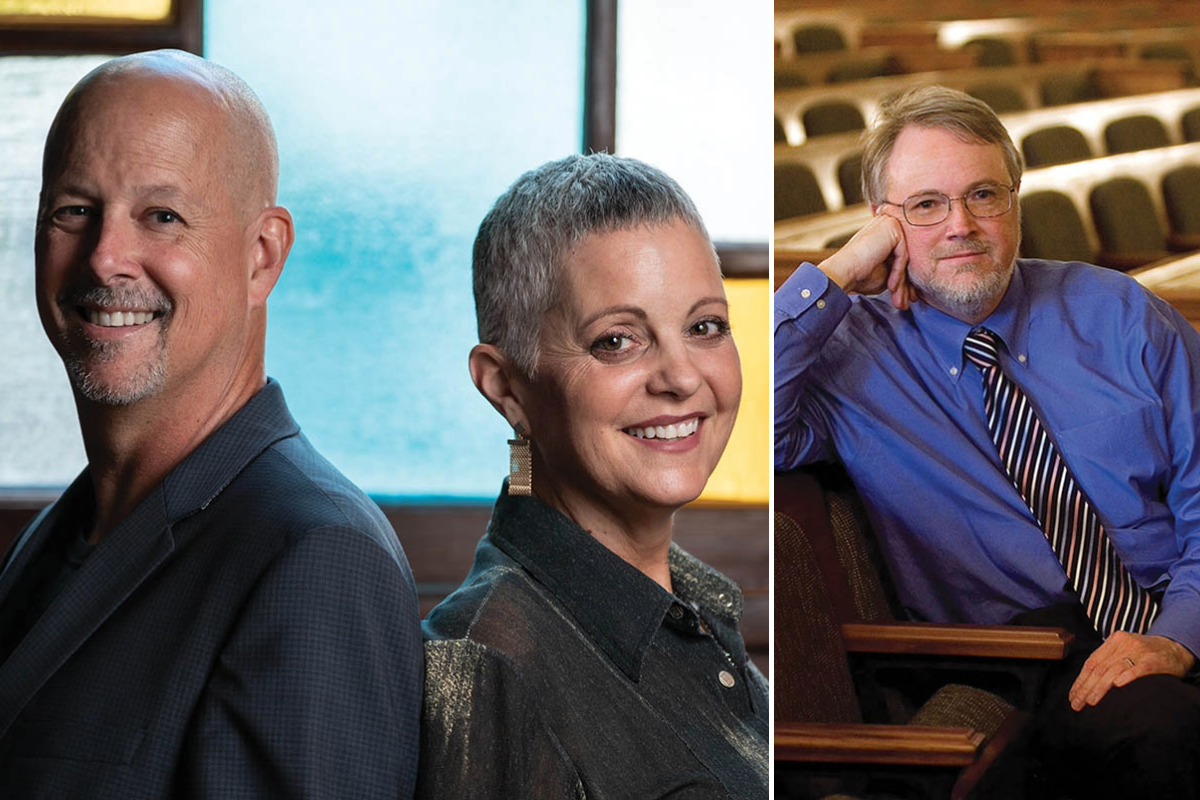
50. The Stage Crafters: Julian Wiles, Sharon Graci, & Rodney Lee Rogers
A great city needs great art, as Joe Riley would say at every Spoleto opening. Yes, a 17-day international festival is terrific, but that leaves 348 days of locals yearning for more, a void Charleston Stage helps fill. Since 1978, the nonprofit theater company founded by Julian Wiles, now director emeritus, has staged 47 seasons of live performances—musicals, drama, and perennial favorites like A Christmas Carol and The Sound of Music, as well as original productions by playwright Wiles. With a resident acting company and an extensive education program reaching some 25,000 young people each year, Charleston Stage raises the curtain, and the bar, for what it means to be a well-funded, well-run community arts organization. And while Charleston Stage offers more mainstream, often family-friendly fare, PURE Theatre rounds out our theatrical ecosystem with edgier, thought-provoking contemporary productions. Though younger and smaller than Charleston Stage, PURE, under the direction of founders Sharon Graci and Rodney Lee Rogers, has held strong as a professional regional theater in a tenuous arts environment for 22 seasons, producing regional premieres as well as original commissioned work, including the world premiere and national tour of Septima.